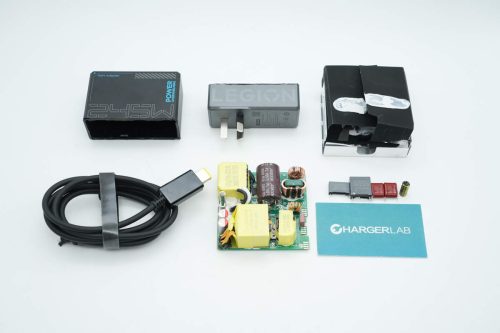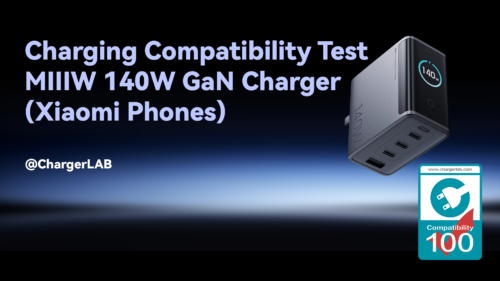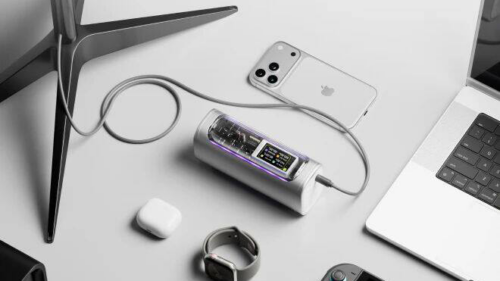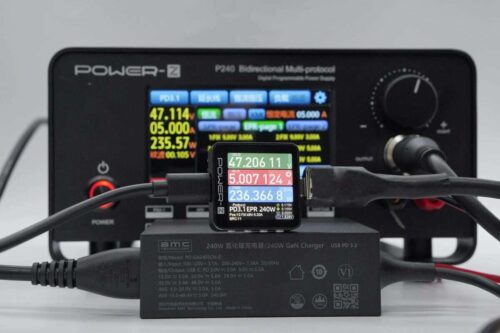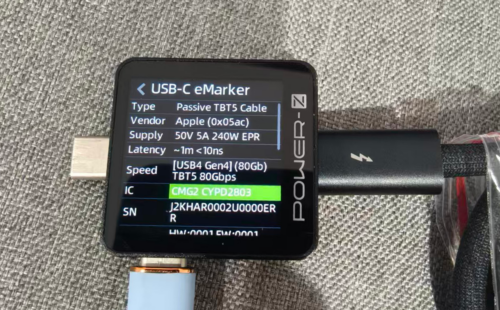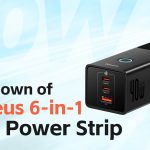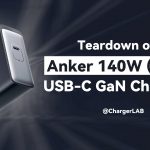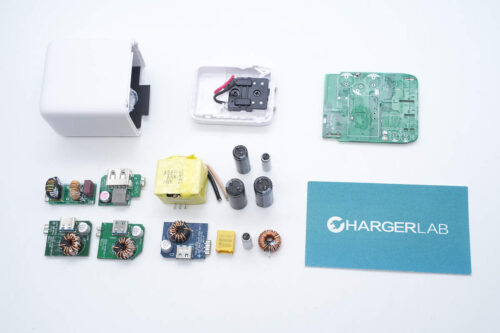Introduction
Lenovo Legion has recently launched a 245W GaN adapter. Compared to other adapters of the same power rating, this one is more compact and lighter in weight. It supports 20V 12.25A output, delivering up to 245W, which allows Legion gaming laptops to unleash their performance fully. It comes with a built-in 1.5-meter Lenovo Slim Tip cable and features an AI-powered display that accurately and precisely shows the real-time power output. Let’s take it apart to see its internal components and structure.
Product Appearance
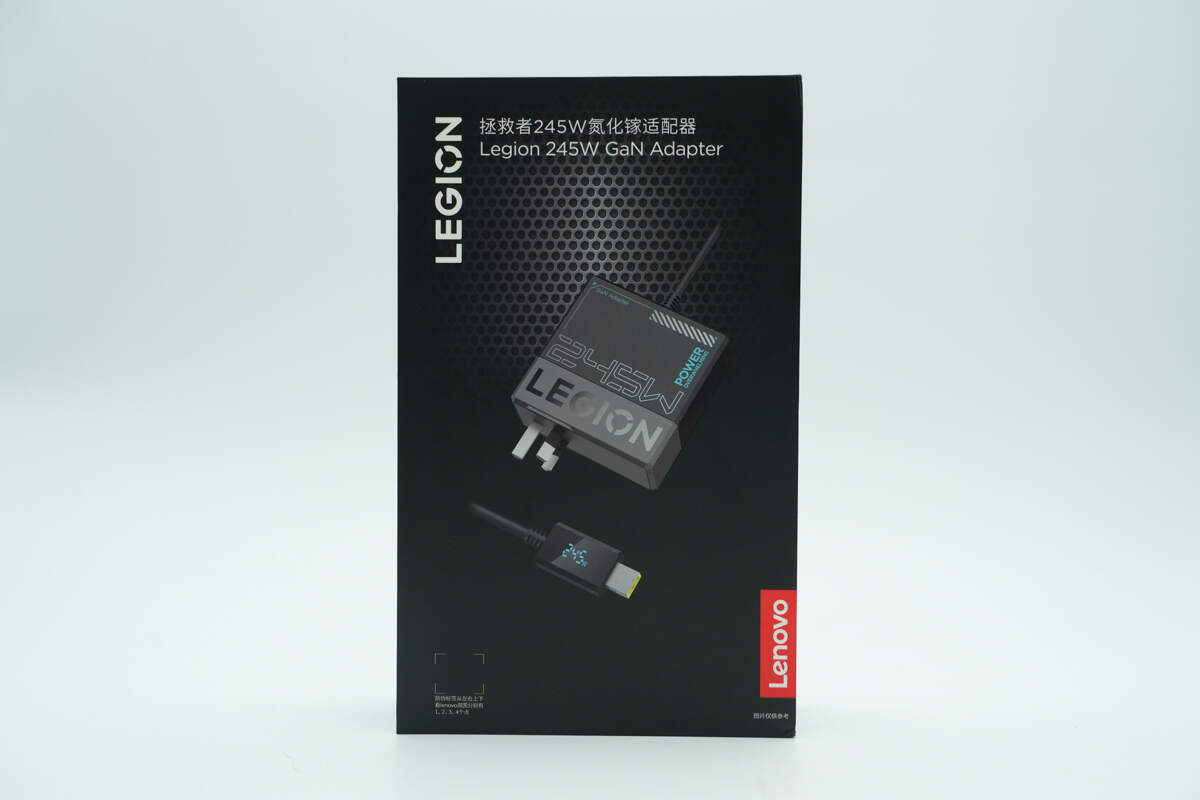
The front of the packaging features the Lenovo and LEGION logos, along with an image of the product.
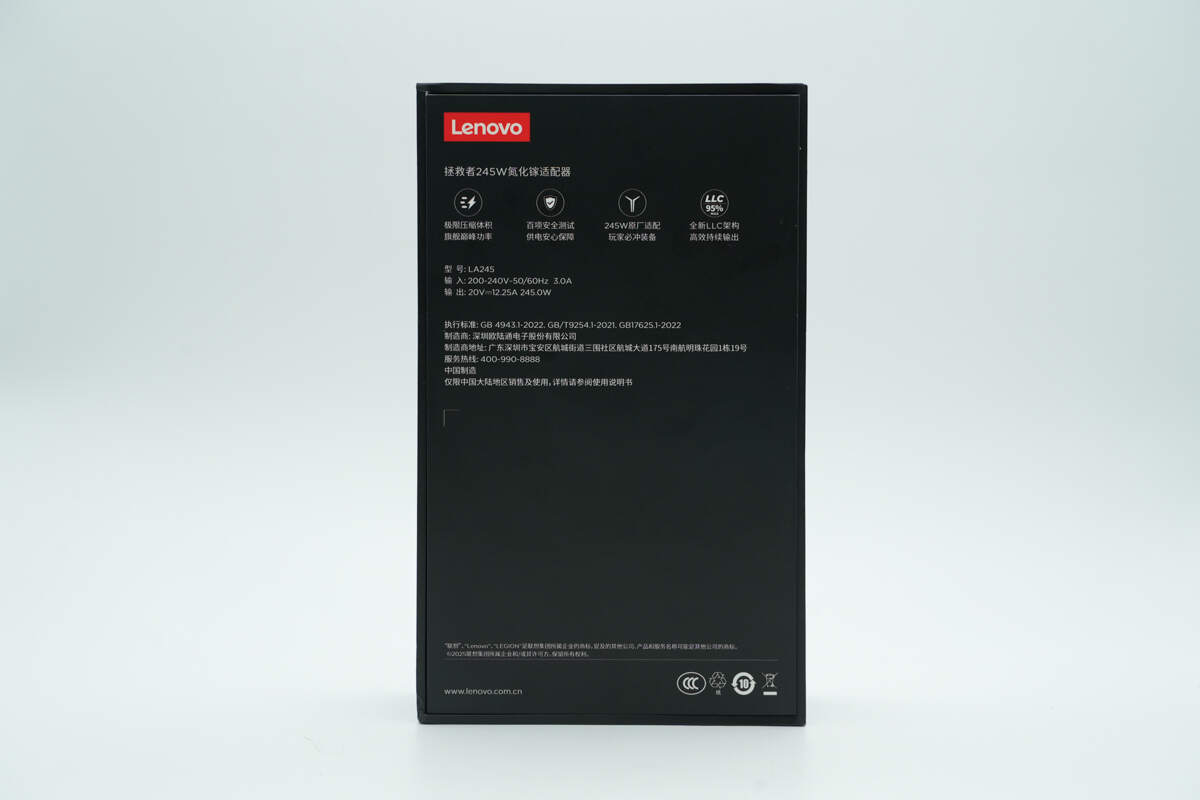
The back of the packaging displays the selling points, specifications, and vendor information.
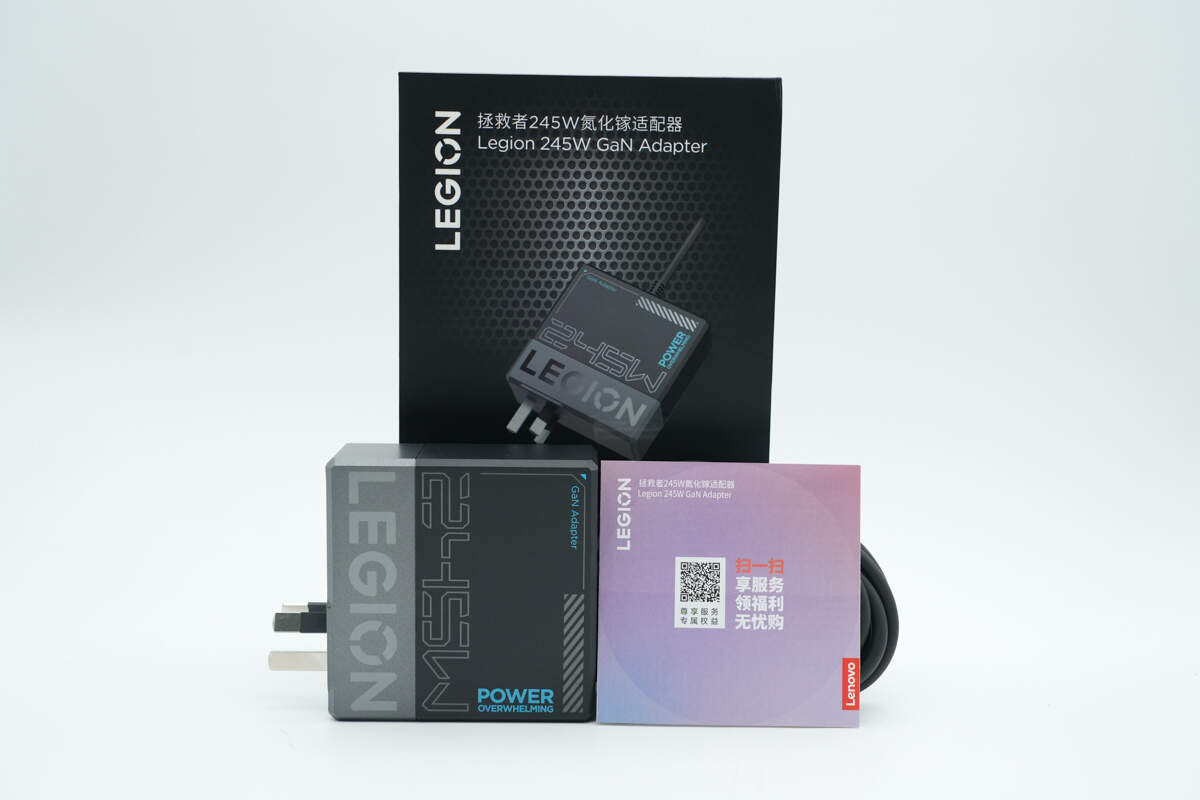
The packaging contains the power adapter and some documents.
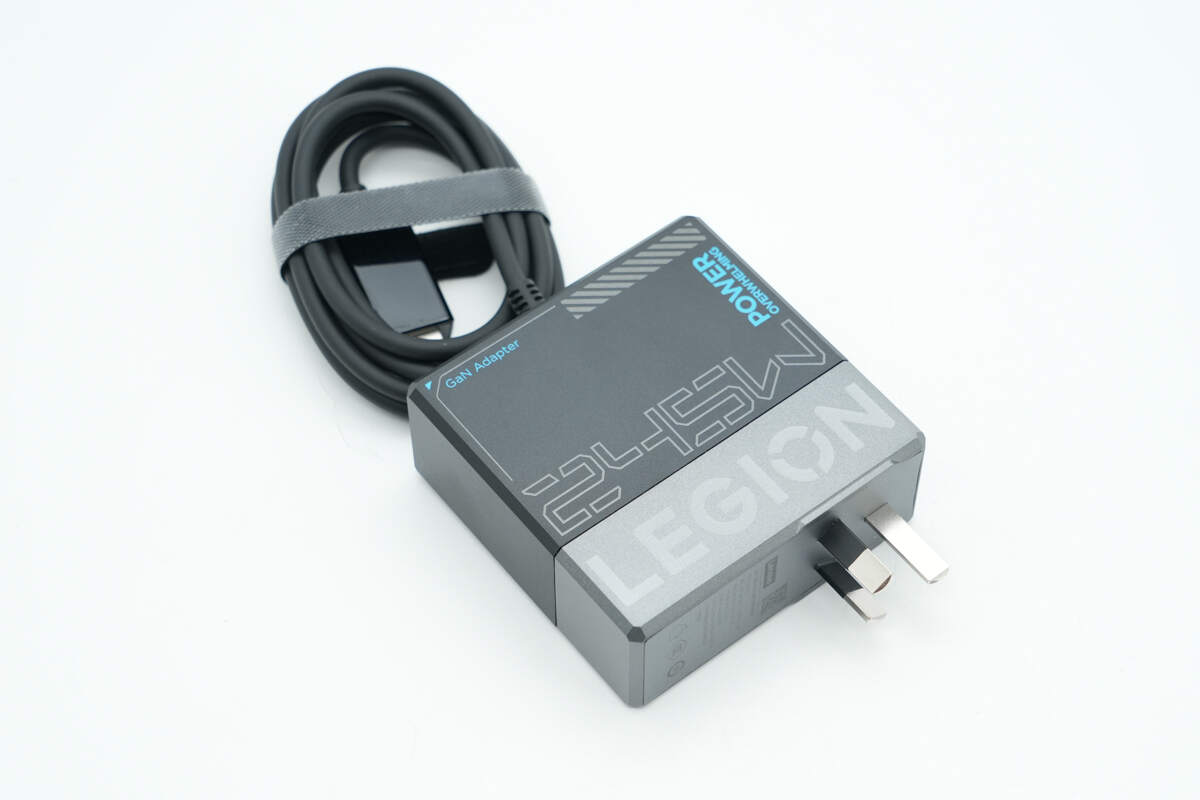
The adapter features a silver and black contrasting color design.
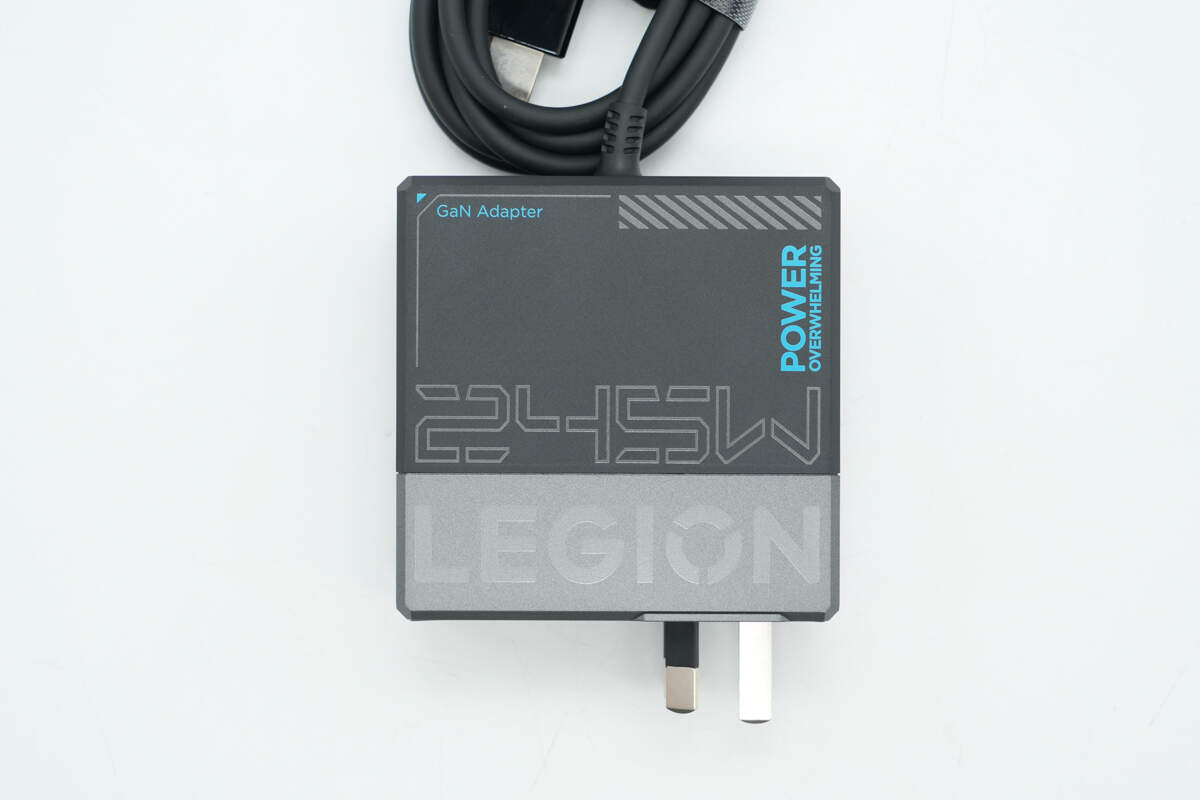
The front is printed with "LEGION," "245W," and "GaN Adapter."
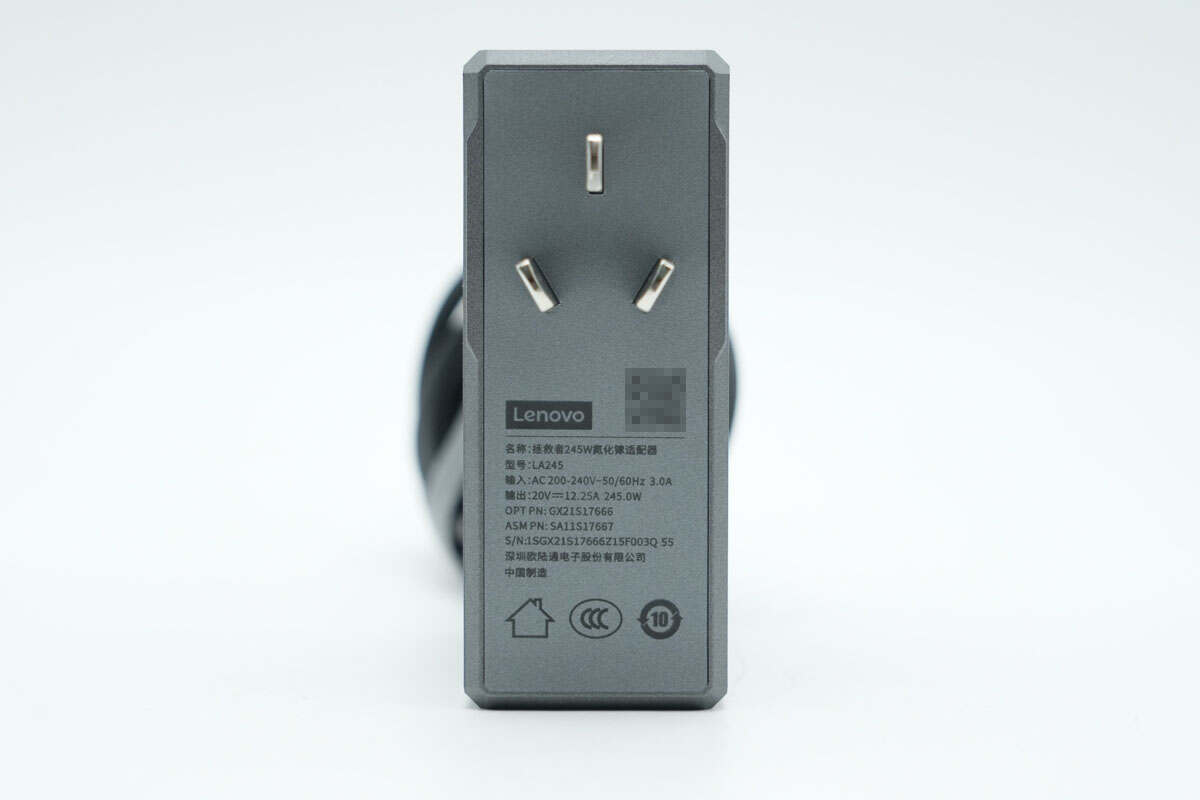
The input-side casing is printed with spec info.
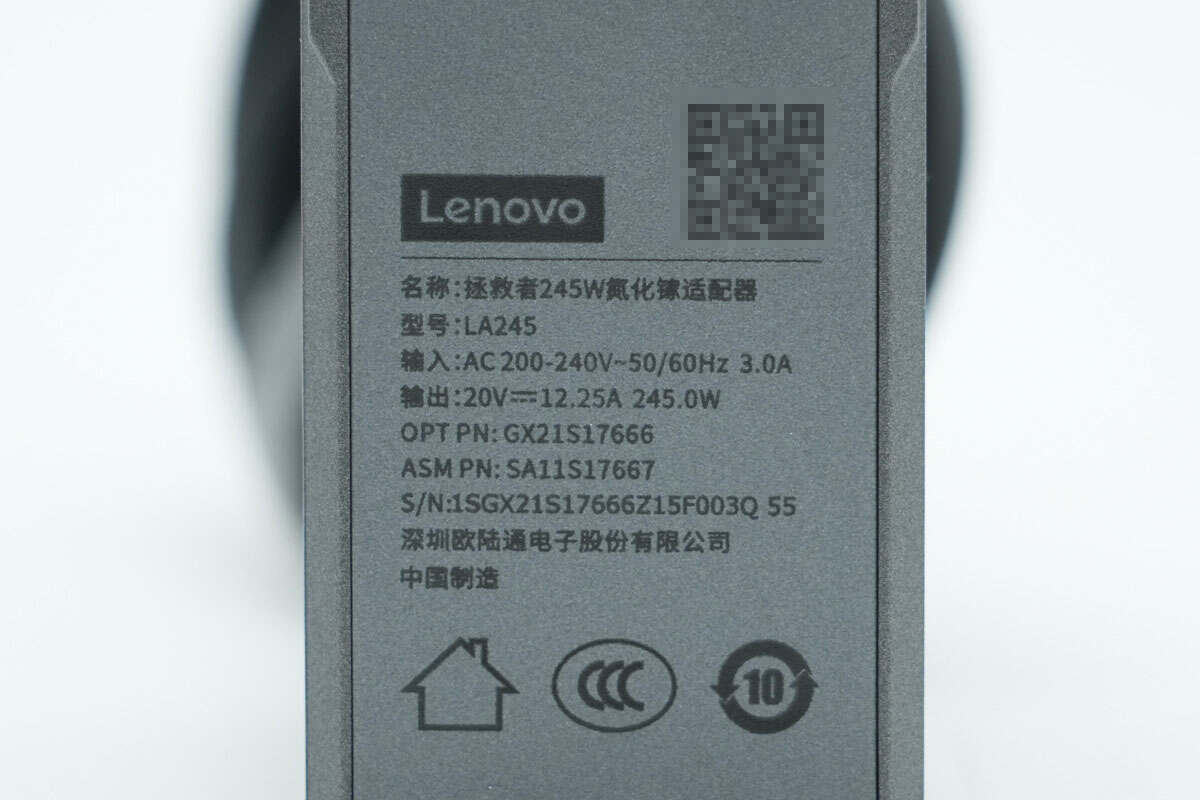
Model: LA245
Input: 200-240V\~50/60Hz 3A
Output: 20V12.25A 245W
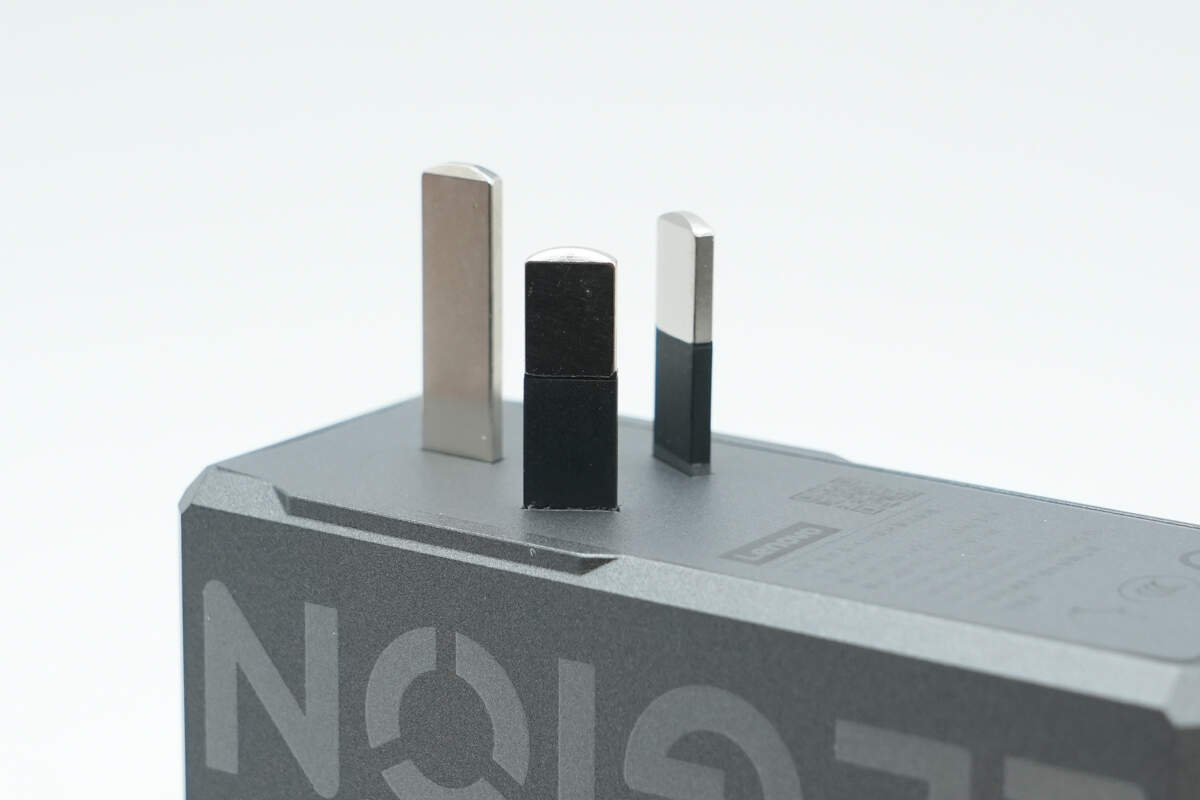
The power supply uses a three-prong plug.
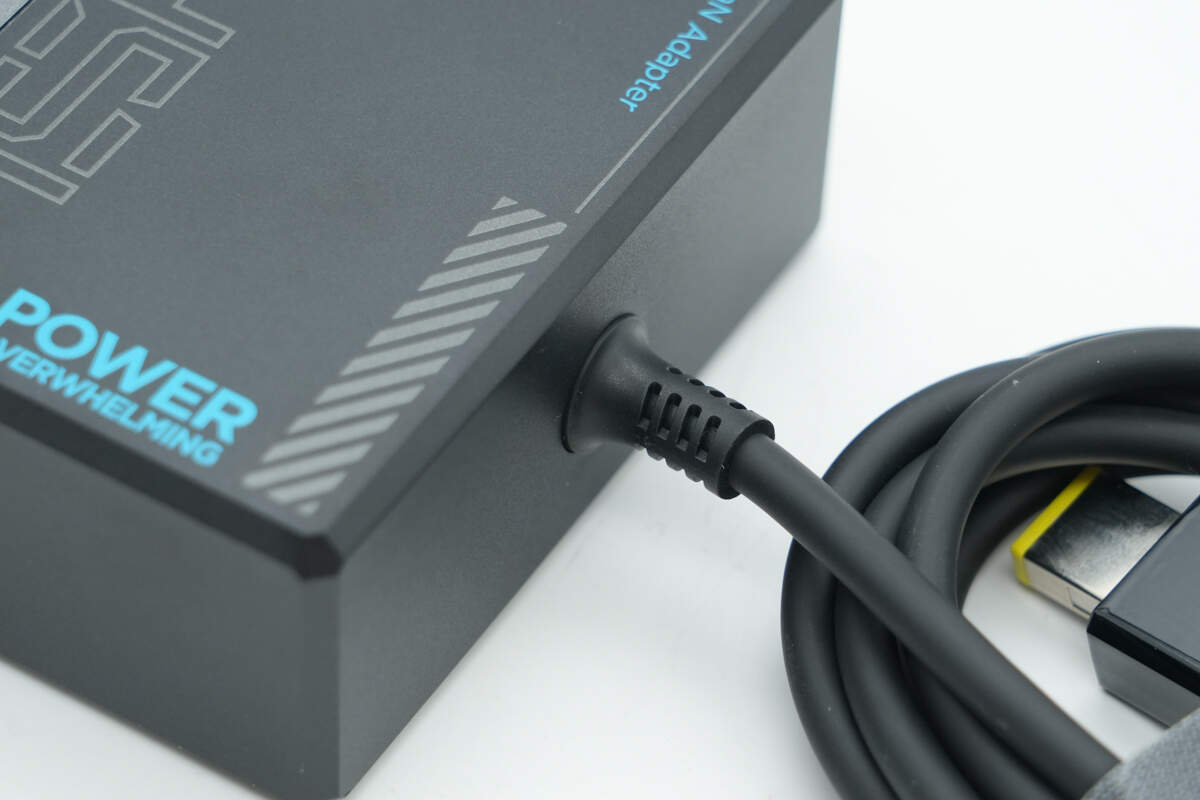
The output cable is reinforced with bend-resistant protection at the connection.
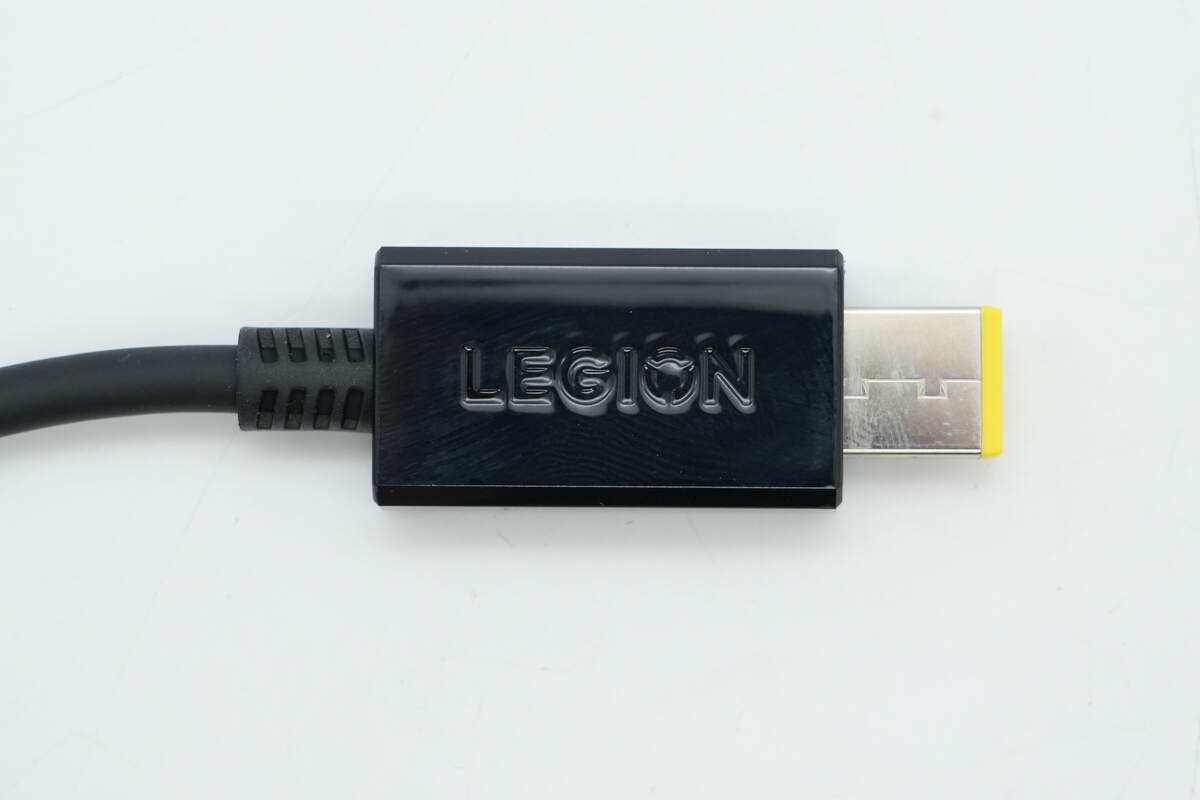
One side of the connector features the LEGION logo.
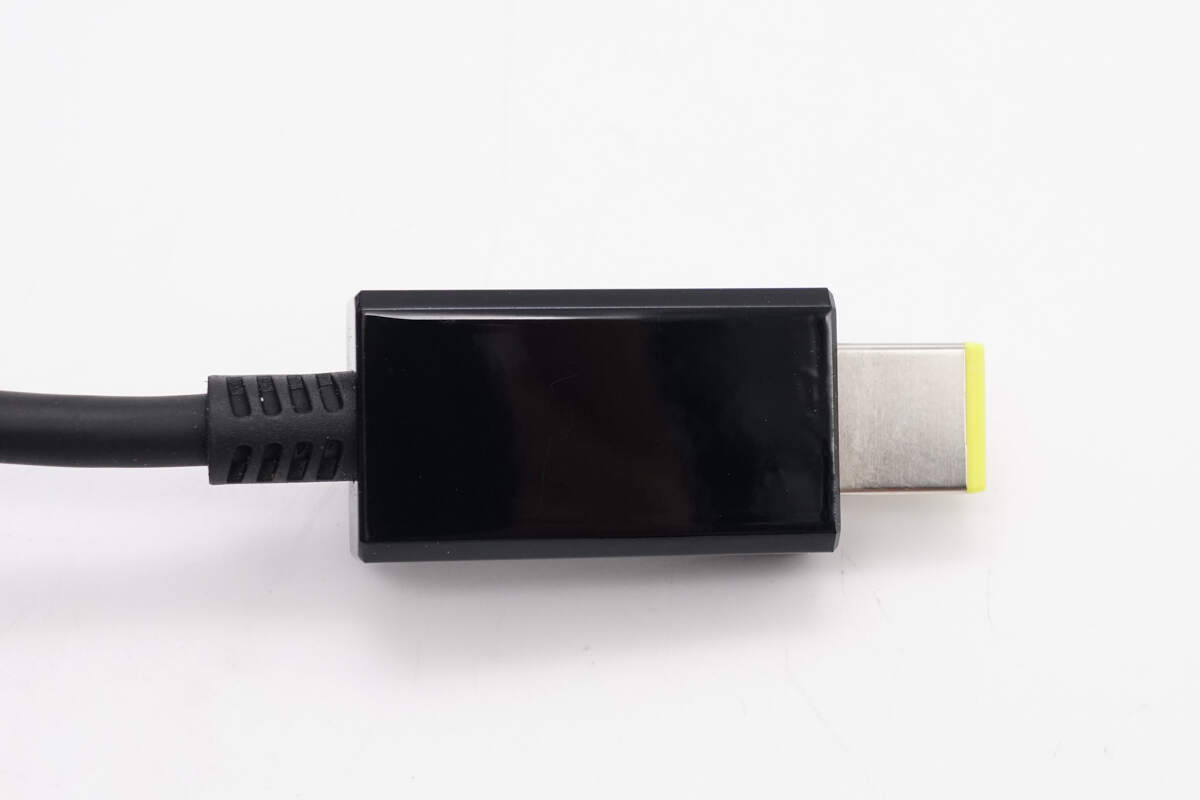
The other side has a built-in digital display that can show the charging power.
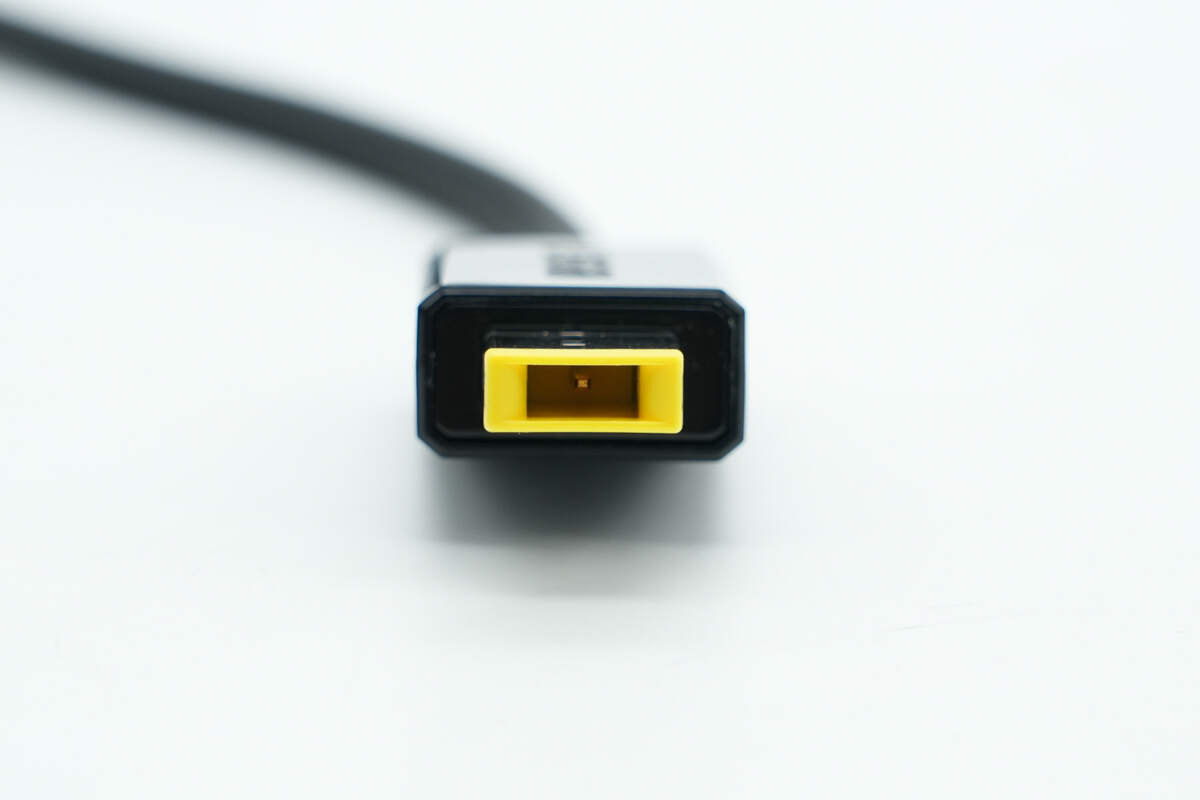
Close-up of the Slim Tip connector.
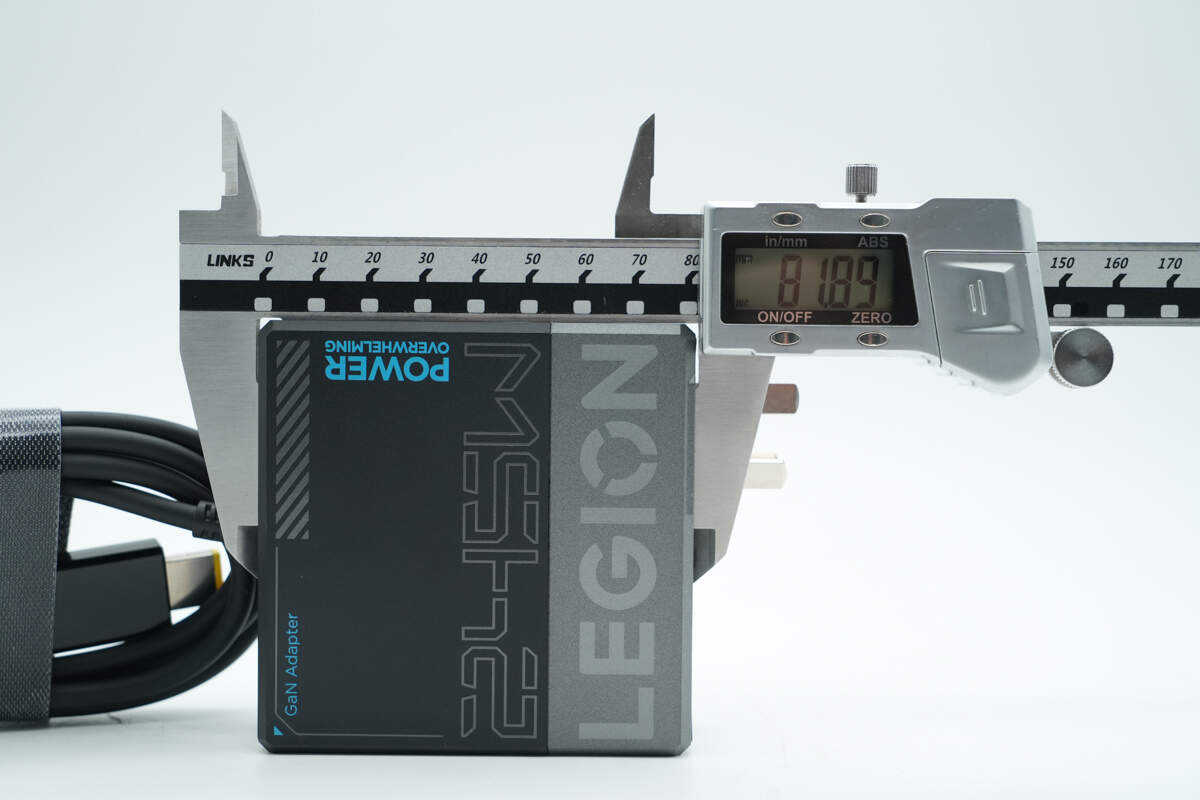
The length of the adapter is about 81.89 mm (3.22 inches).
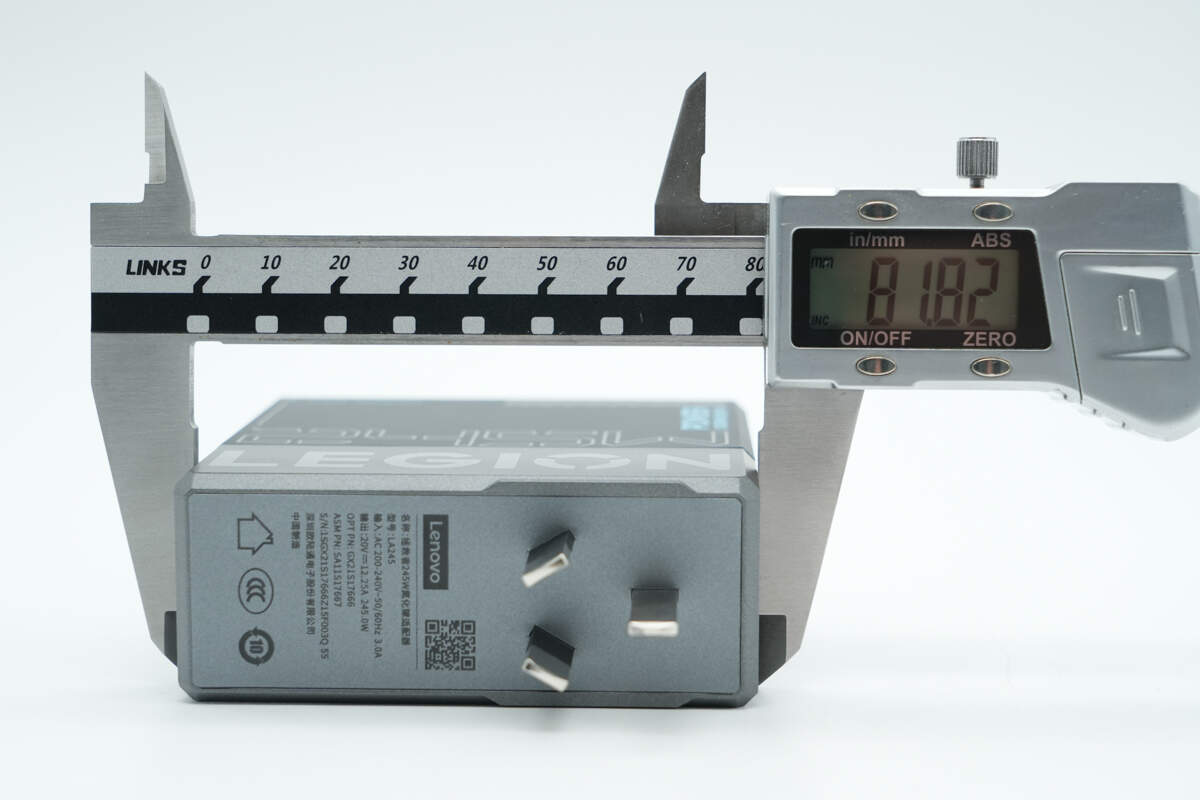
The width is about 81.82 mm (3.22 inches).
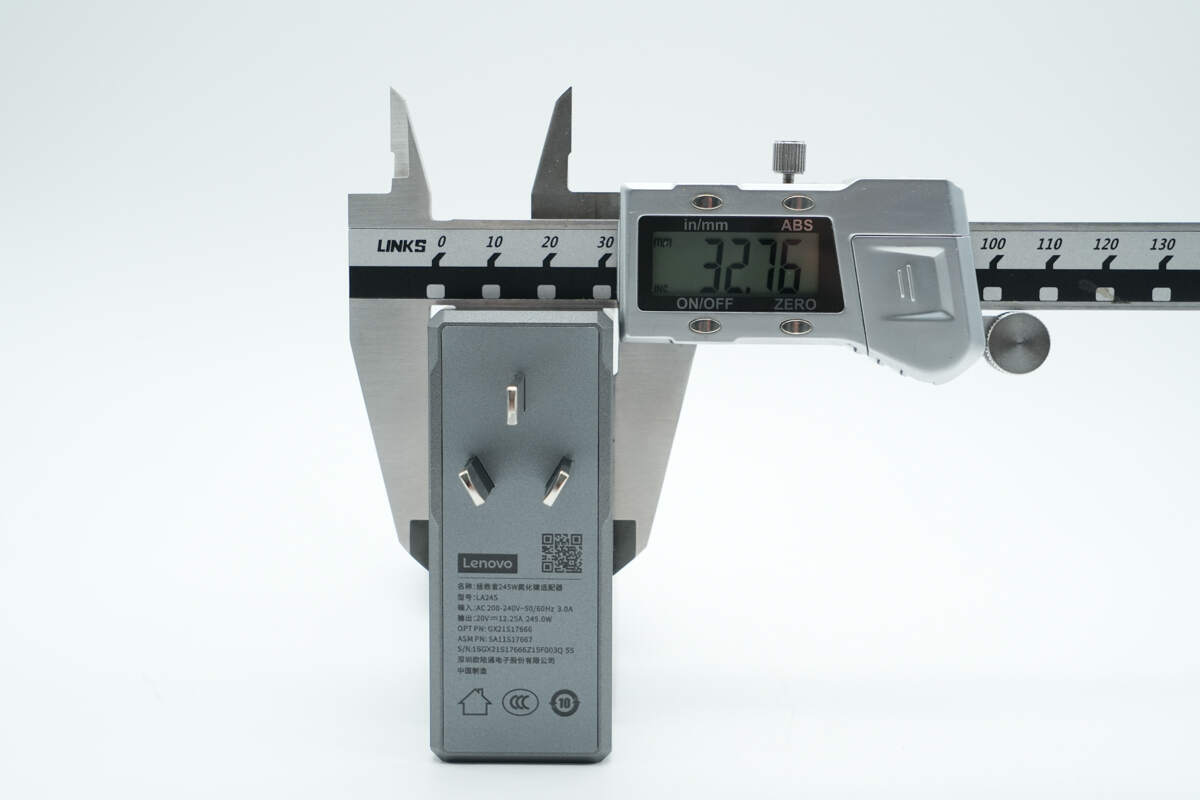
The thickness is about 32.76 mm (1.29 inches).
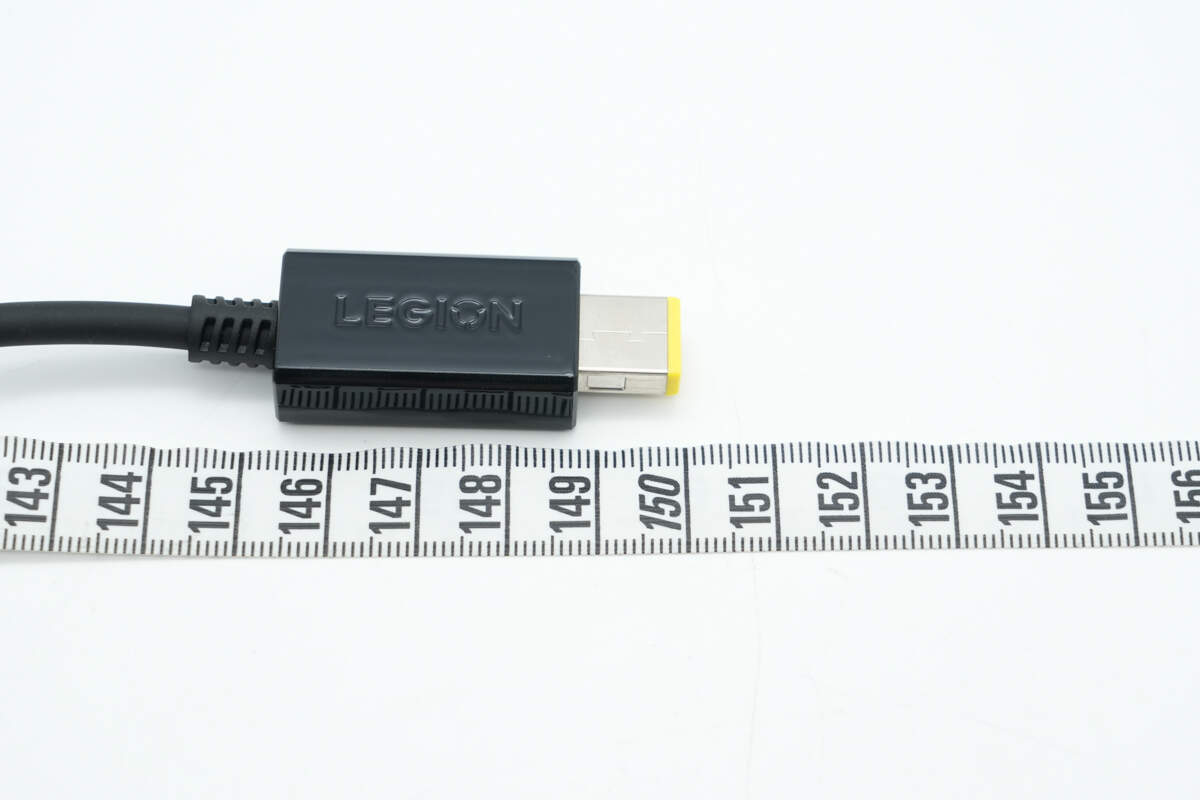
The length of the cable is about 150 cm (59.06 inches).
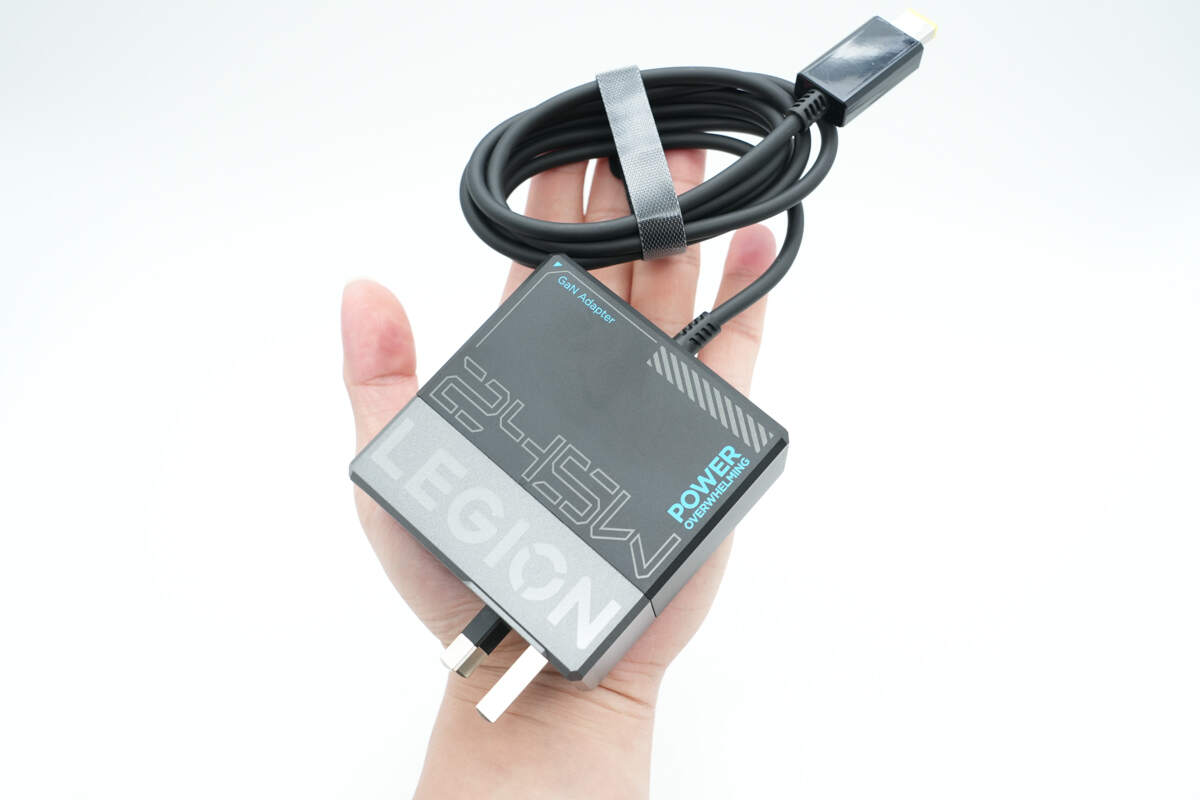
That's how big it is in the hand.
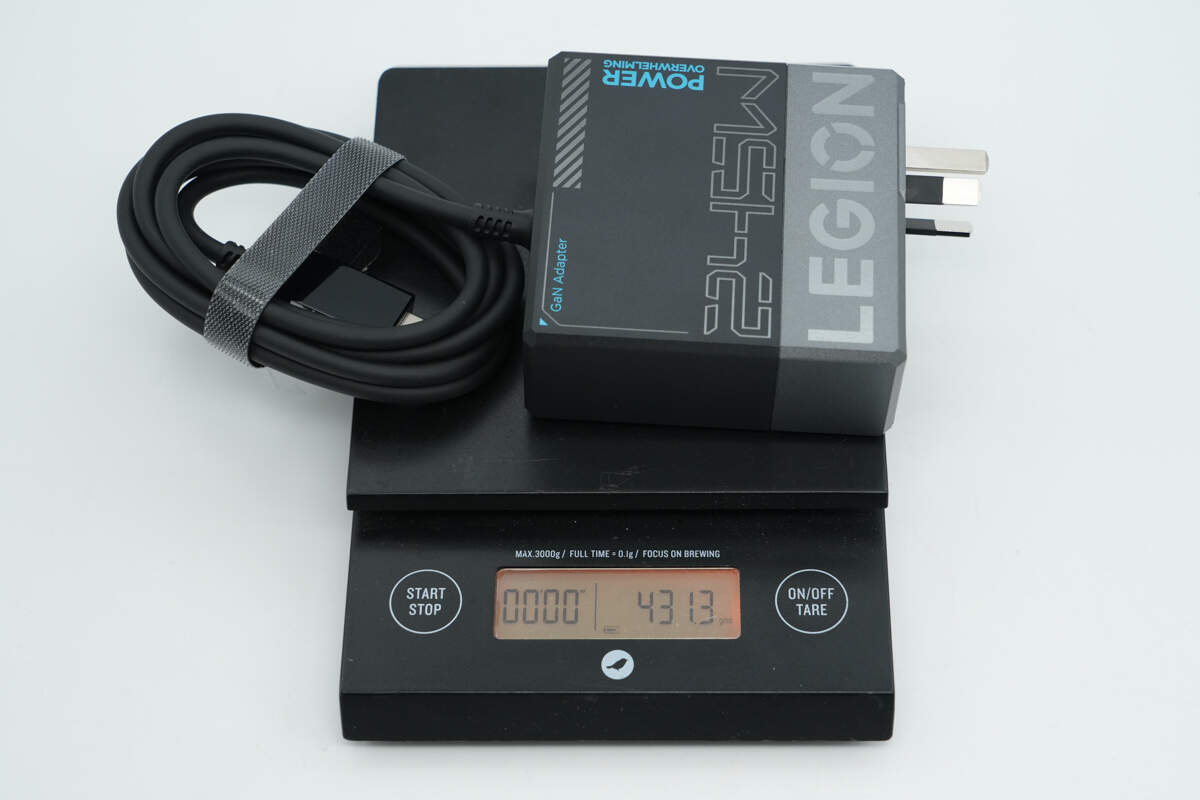
The weight is about 431 g (15.2 oz).
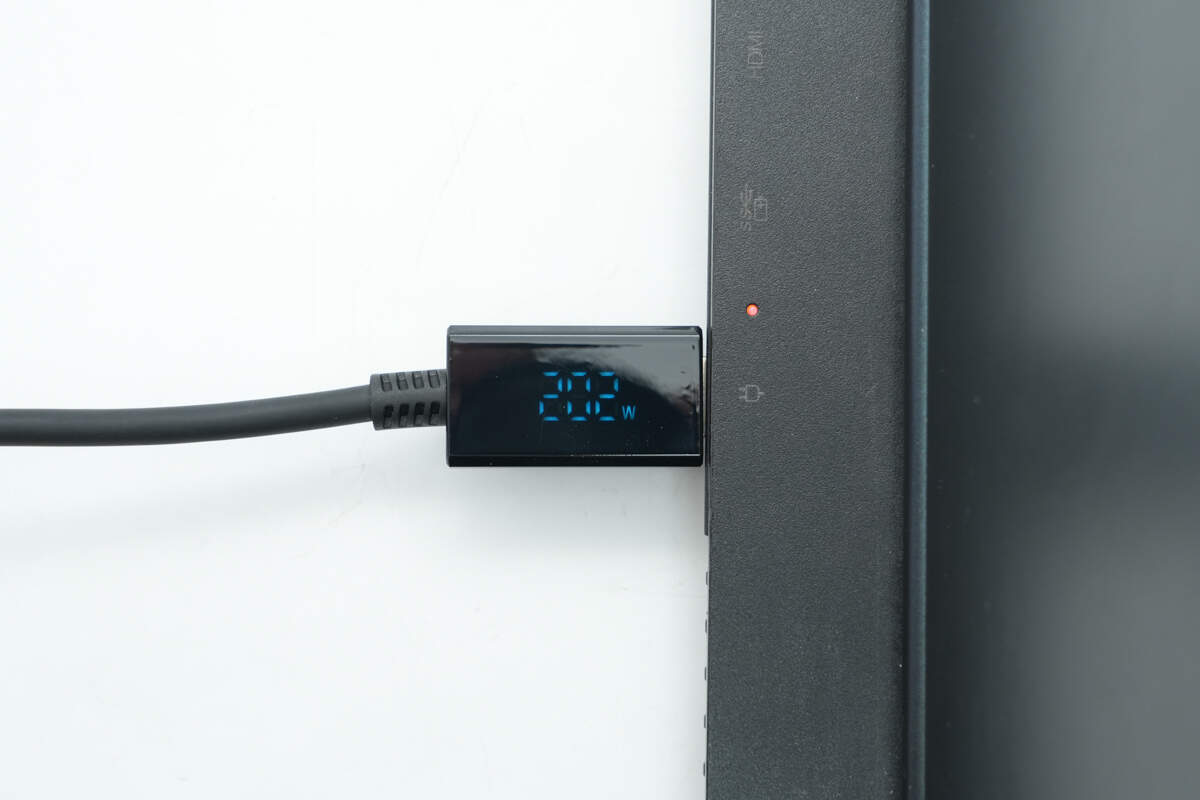
When used to charge the Legion R7000P, the connector’s digital display shows a charging power of 202W.
Teardown
Next, let's take it apart to see its internal components and structure.
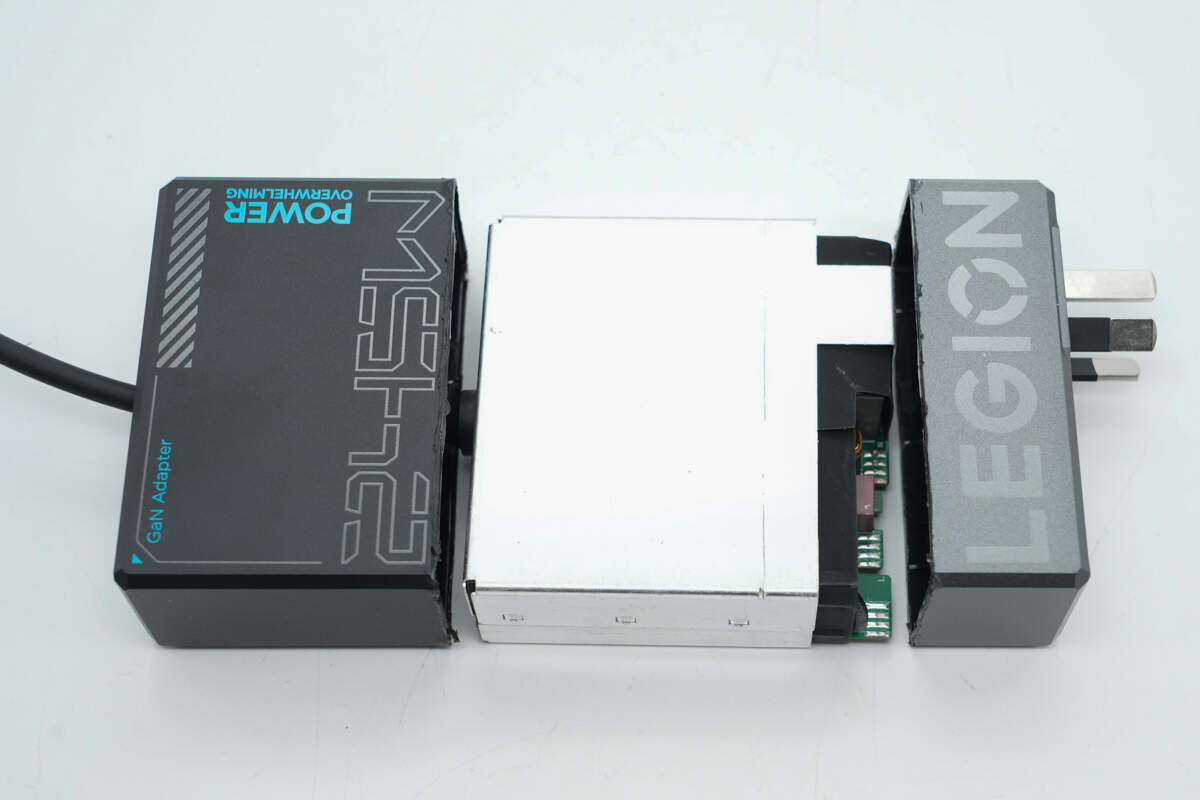
Cut open the shell to remove the PCBA module.
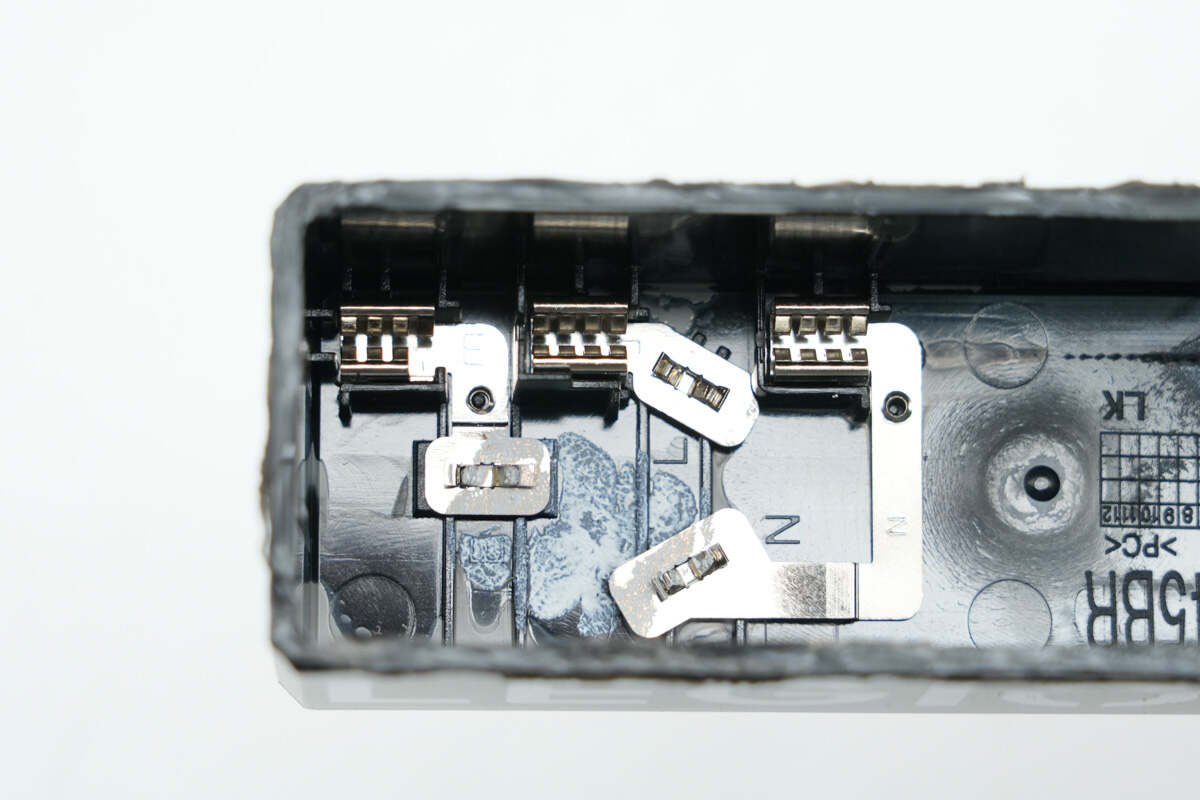
The input terminal features a contact design, using metal spring clips to make a press-fit connection with the prongs.
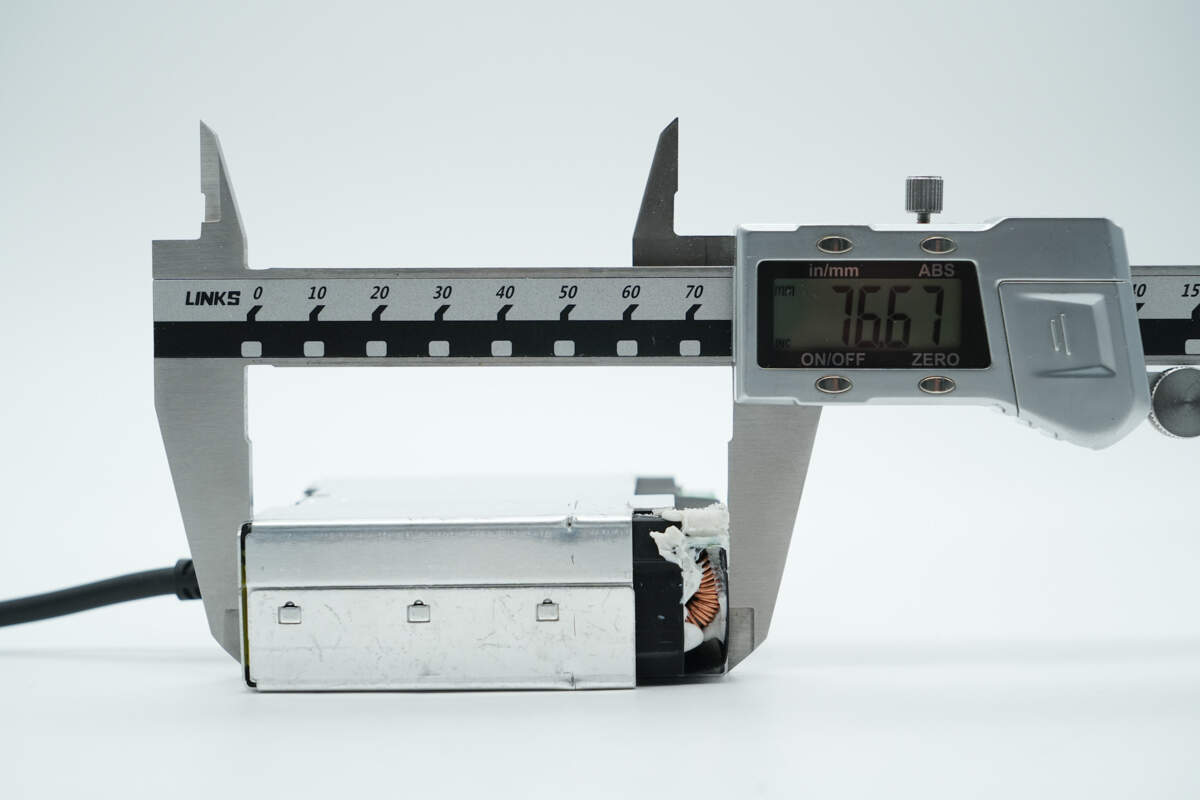
The length of the PCBA module is about 76.67 mm (3.019 inches).
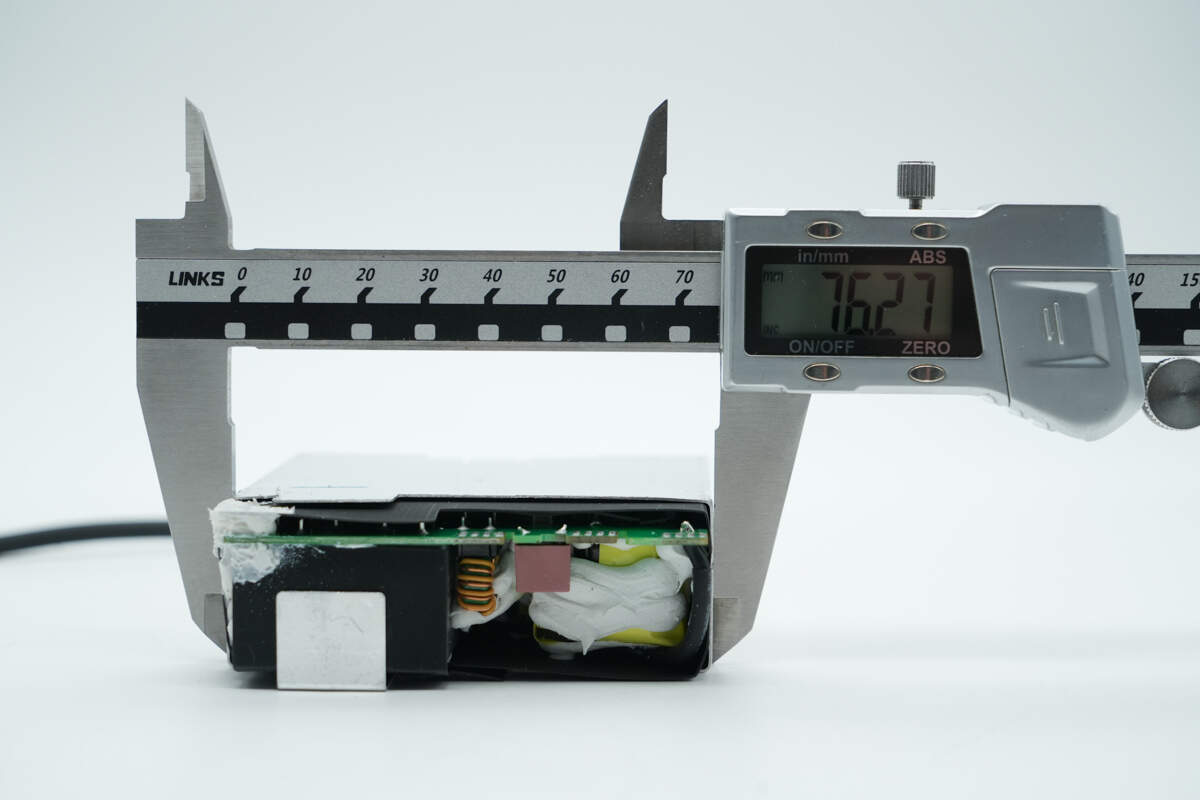
The width is about 76.27 mm (3.0028 inches).
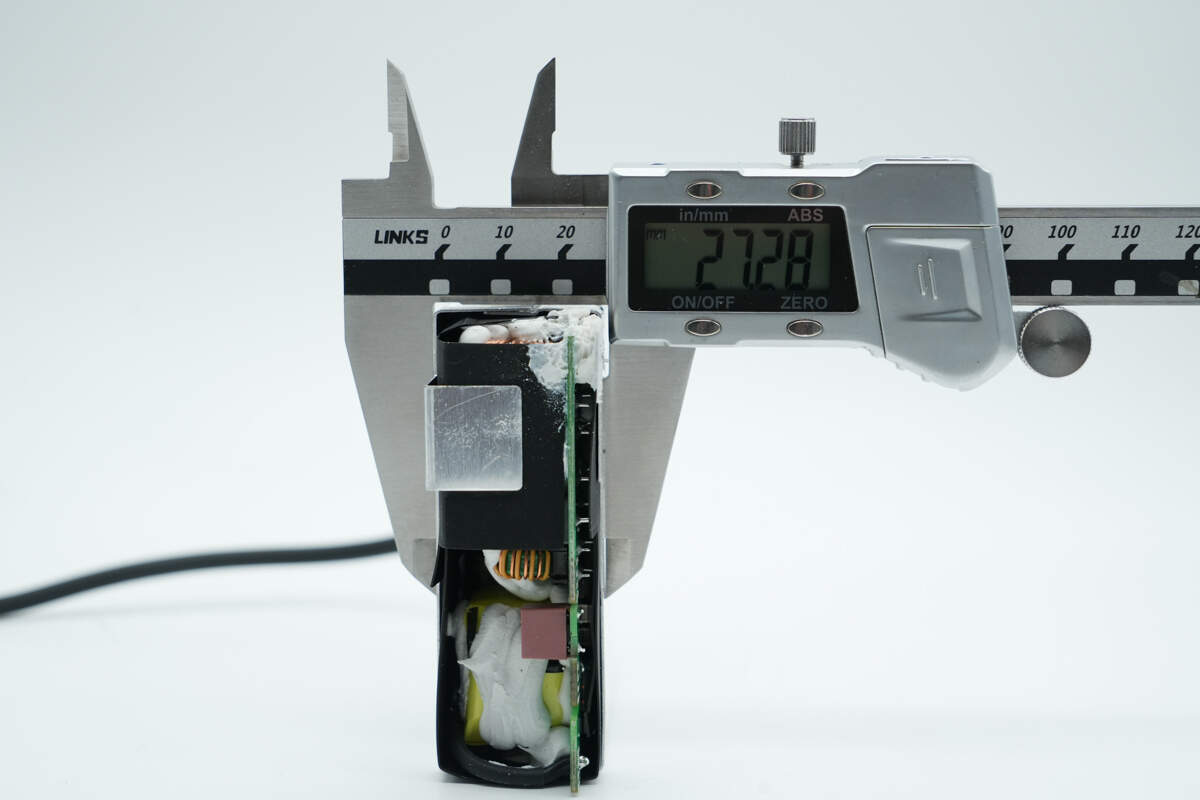
The thickness is about 27.28 mm (1.074 inches).
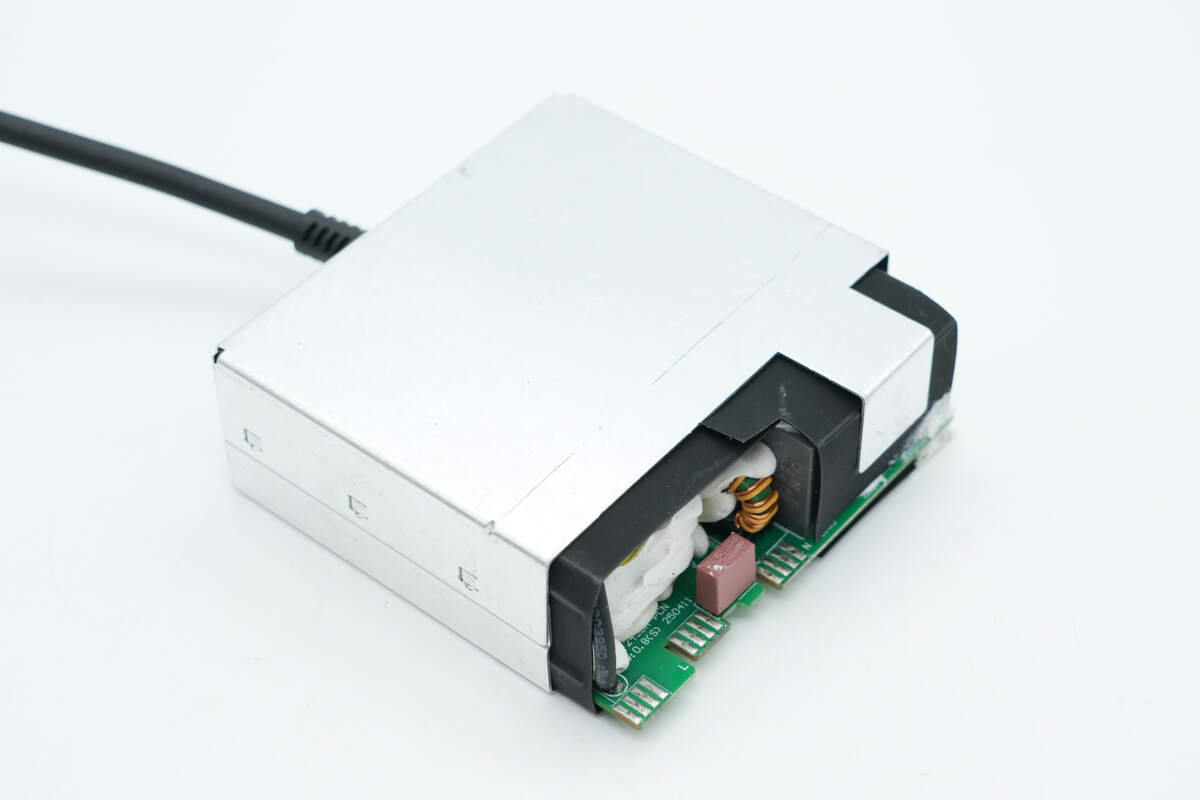
The PCBA module is covered with metal heatsinks, and both sides are secured with a snap-fit structure.
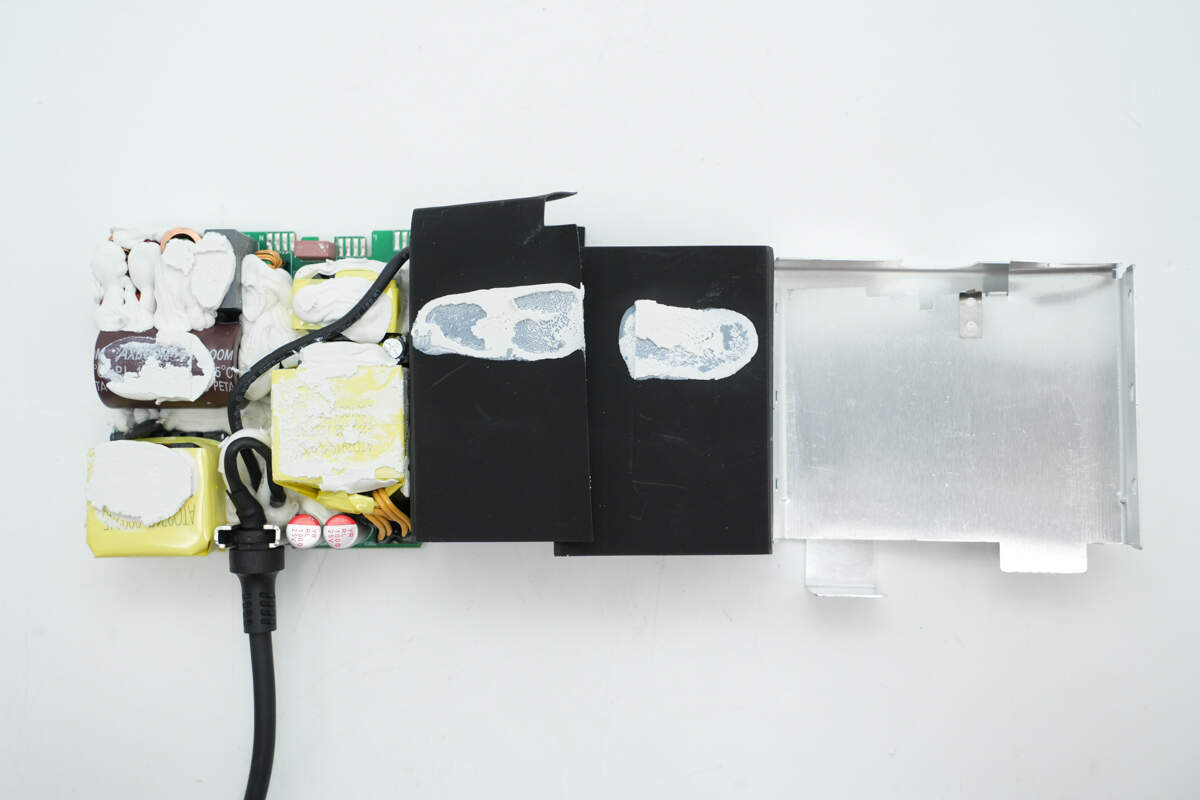
Remove the heatsink, and inside, there are Mylar sheets for insulation.
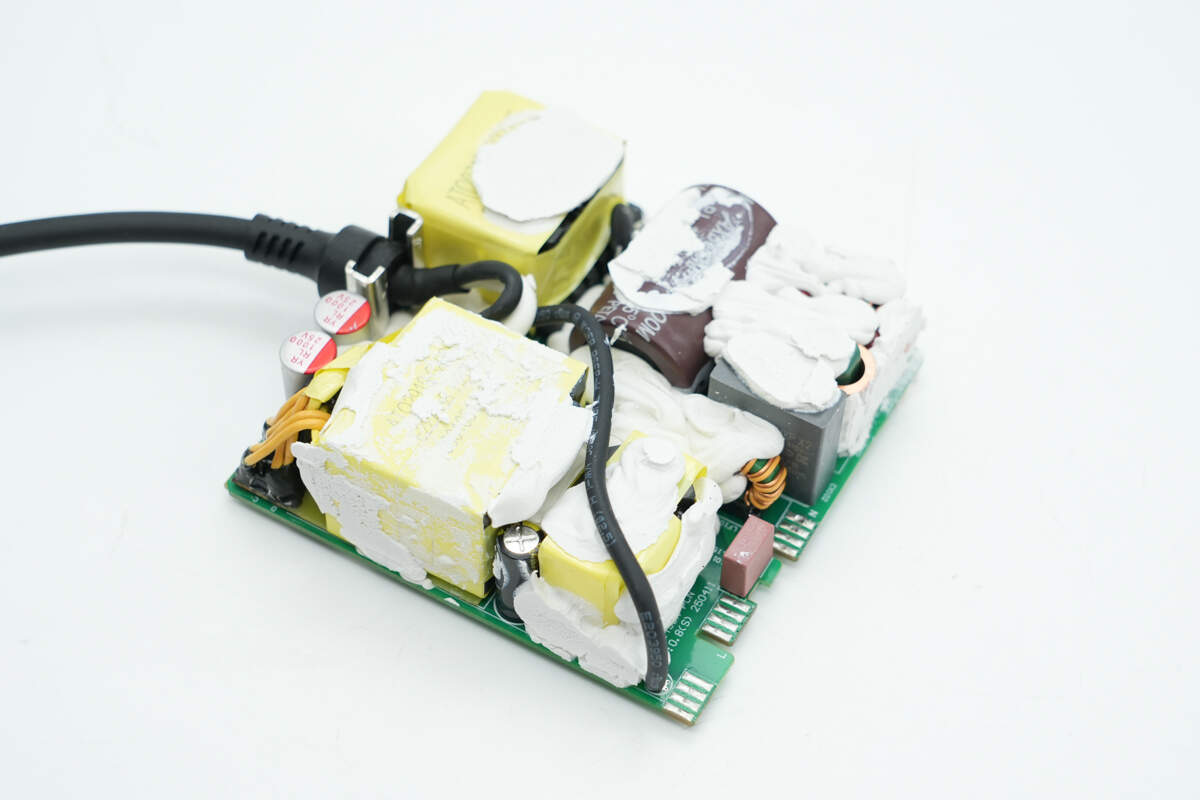
The front of the PCBA module contains components such as the transformer and capacitors.
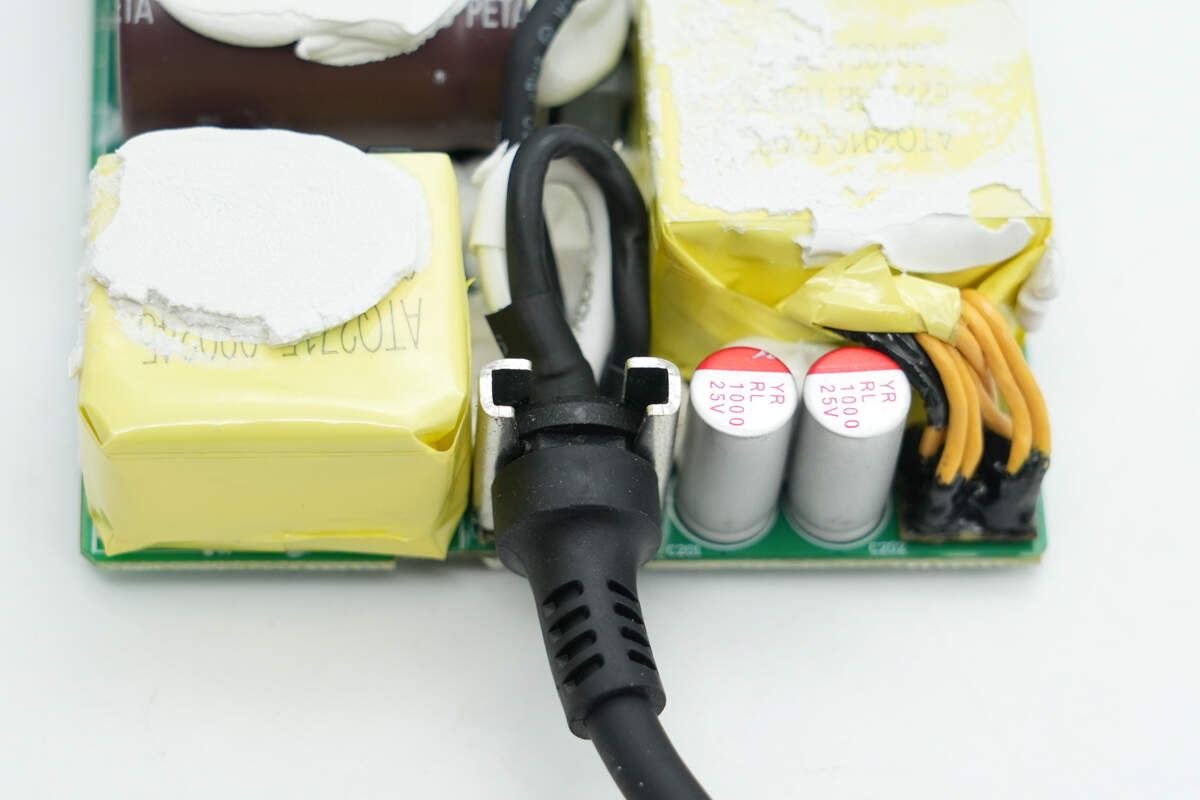
The output cable is secured with a metal plate for added stability.
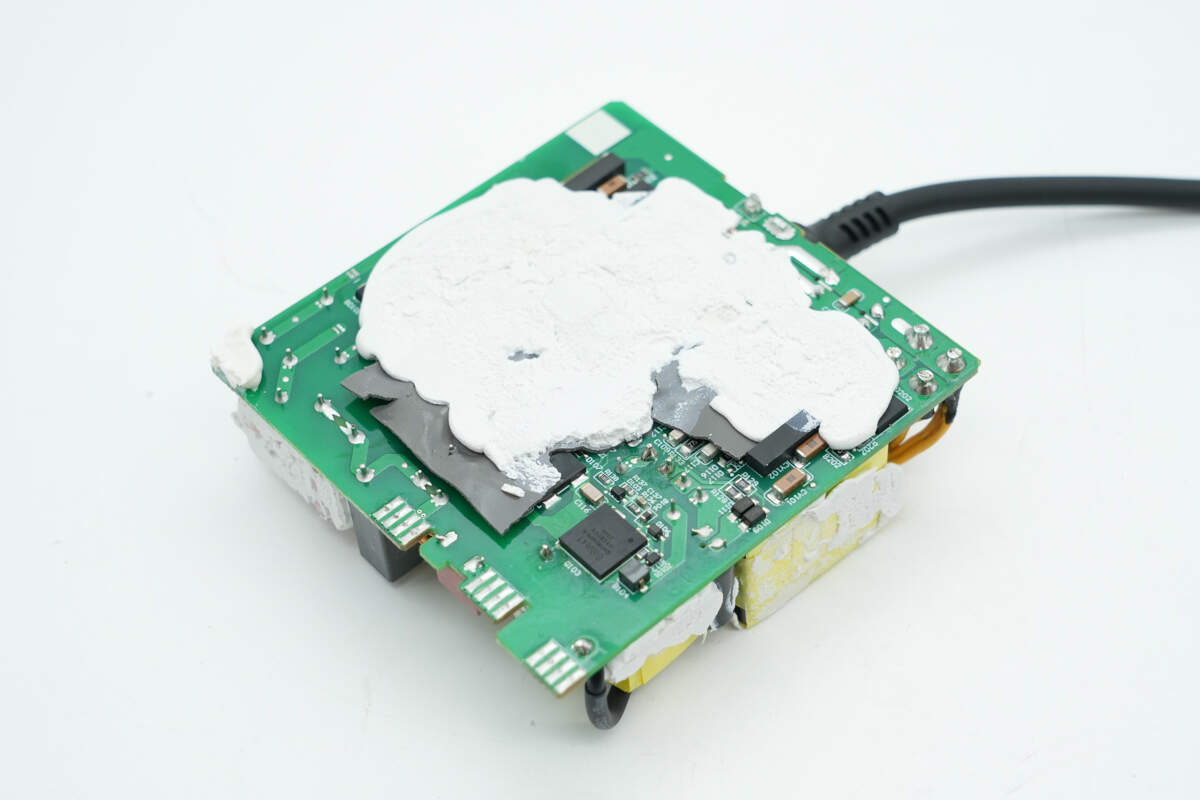
The central area on the back is covered with thermal adhesive.
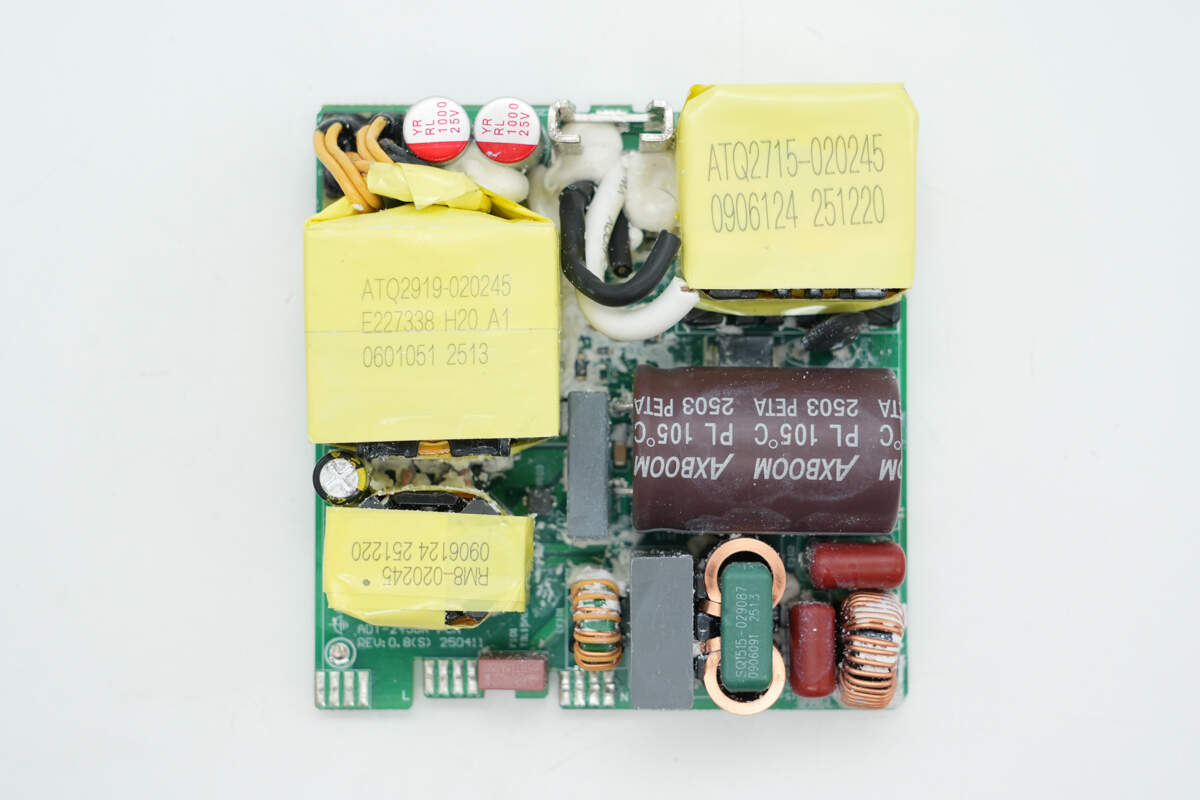
The front side of the main board includes components such as a time-delay fuse, common mode choke, electrolytic capacitors, PFC boost inductor, resonant inductor, and transformer. A resonant capacitor is also located at the center.
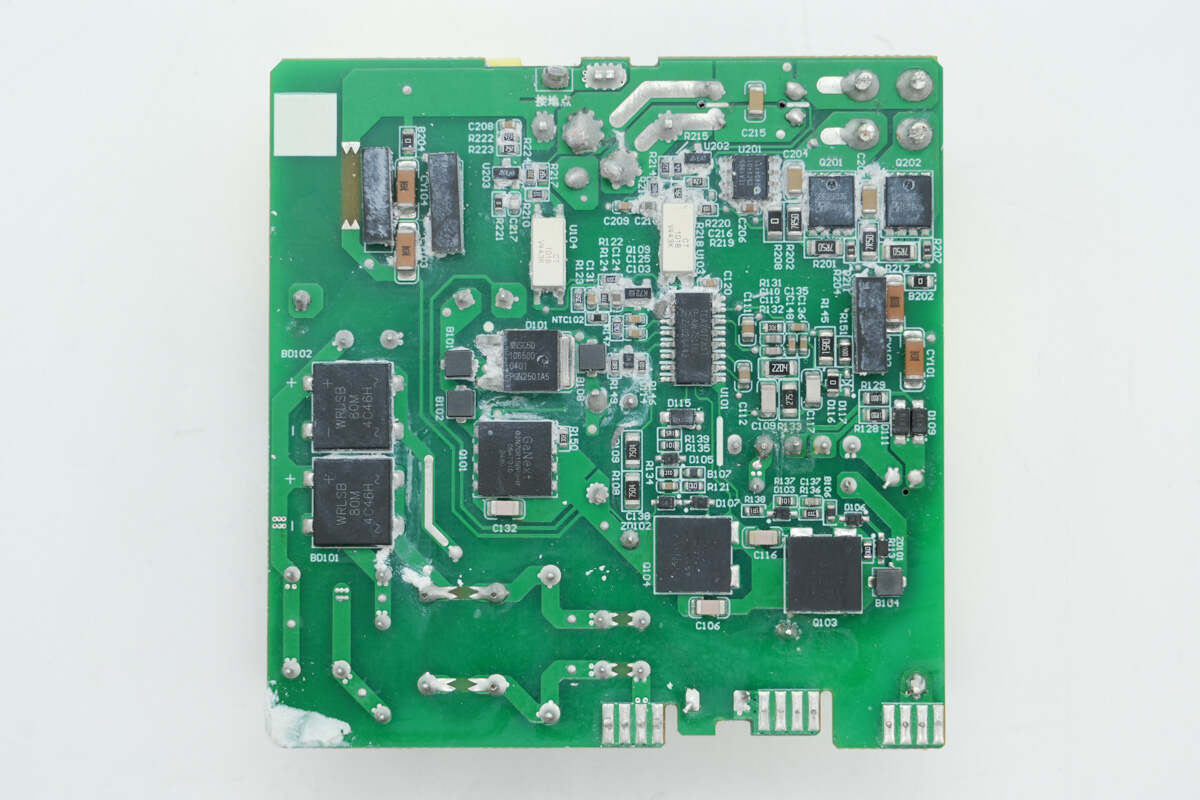
The back features a bridge rectifier, master control chip, along with supporting components such as the PFC MOSFET, LLC MOSFET, and synchronous rectifier.
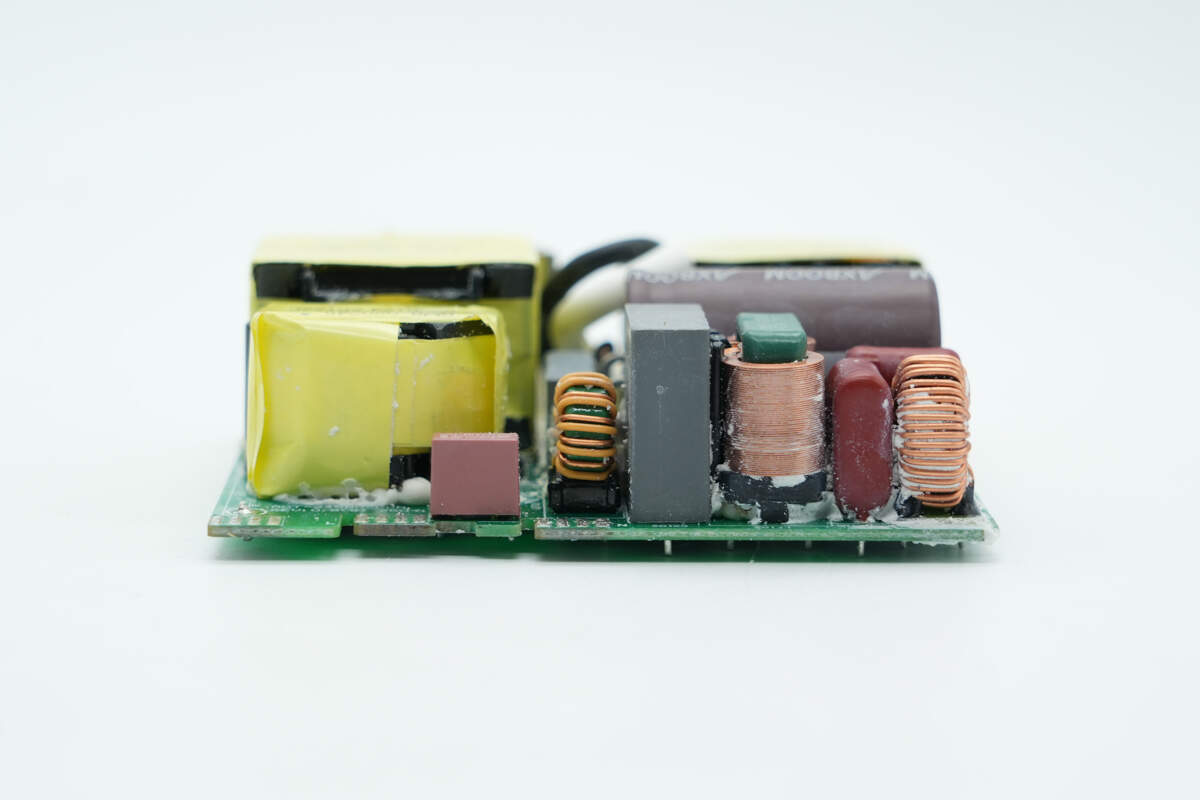
The front end of the PCBA module includes a time-delay fuse, common mode choke, safety X2 capacitor, regular capacitors, and a filter inductor.
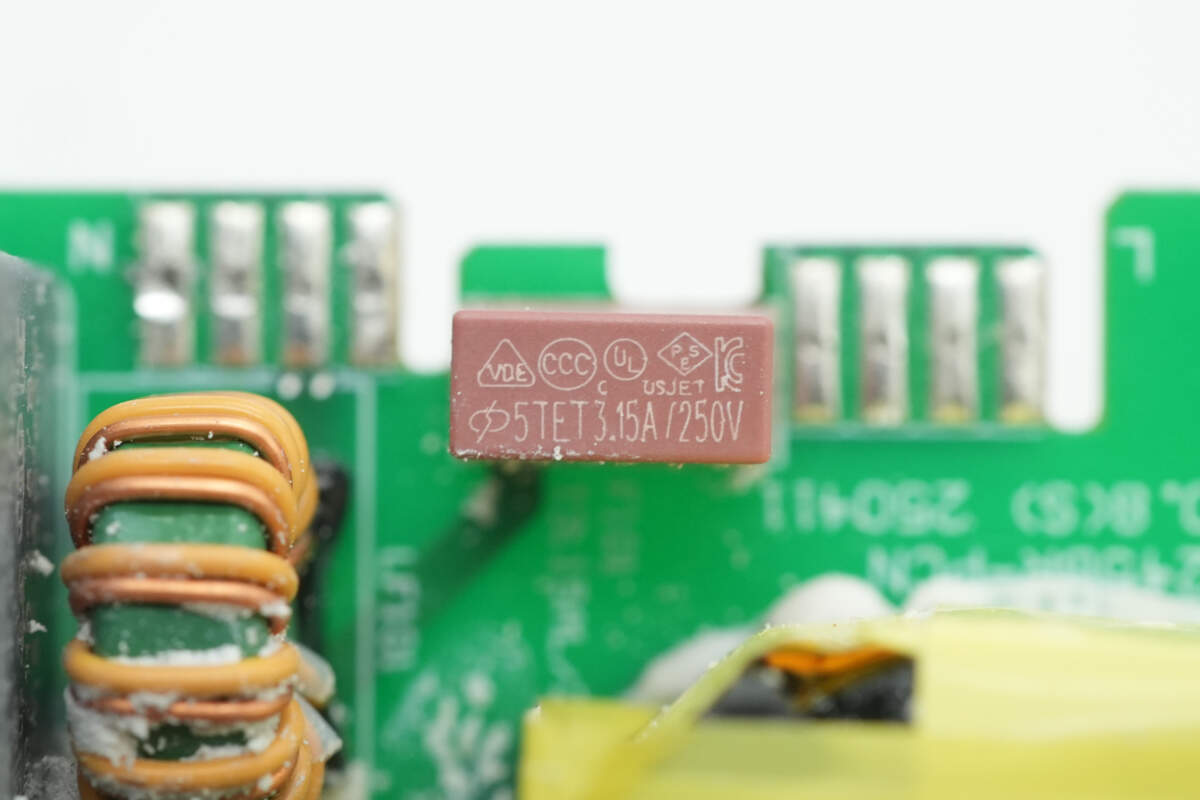
The time-delay fuse has a specification of 3.15A, 250V.
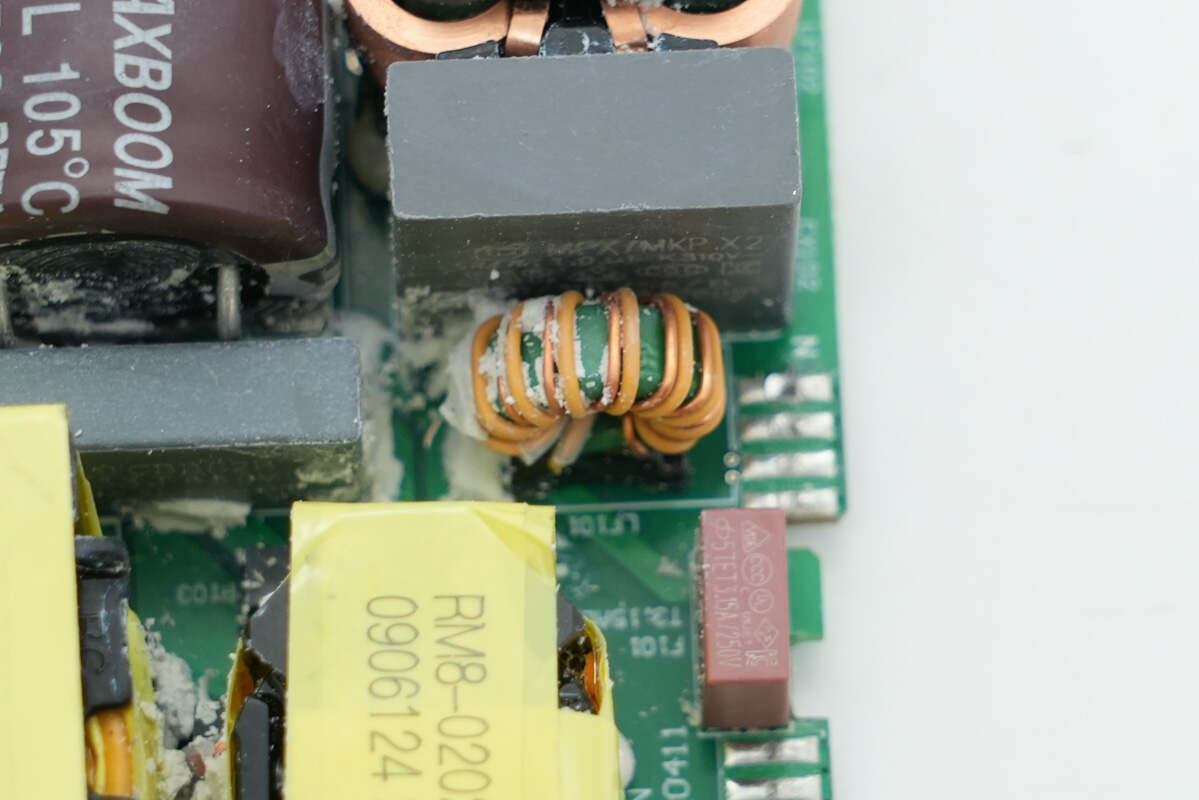
The common mode choke is wound with dual wires and is used to filter out EMI.
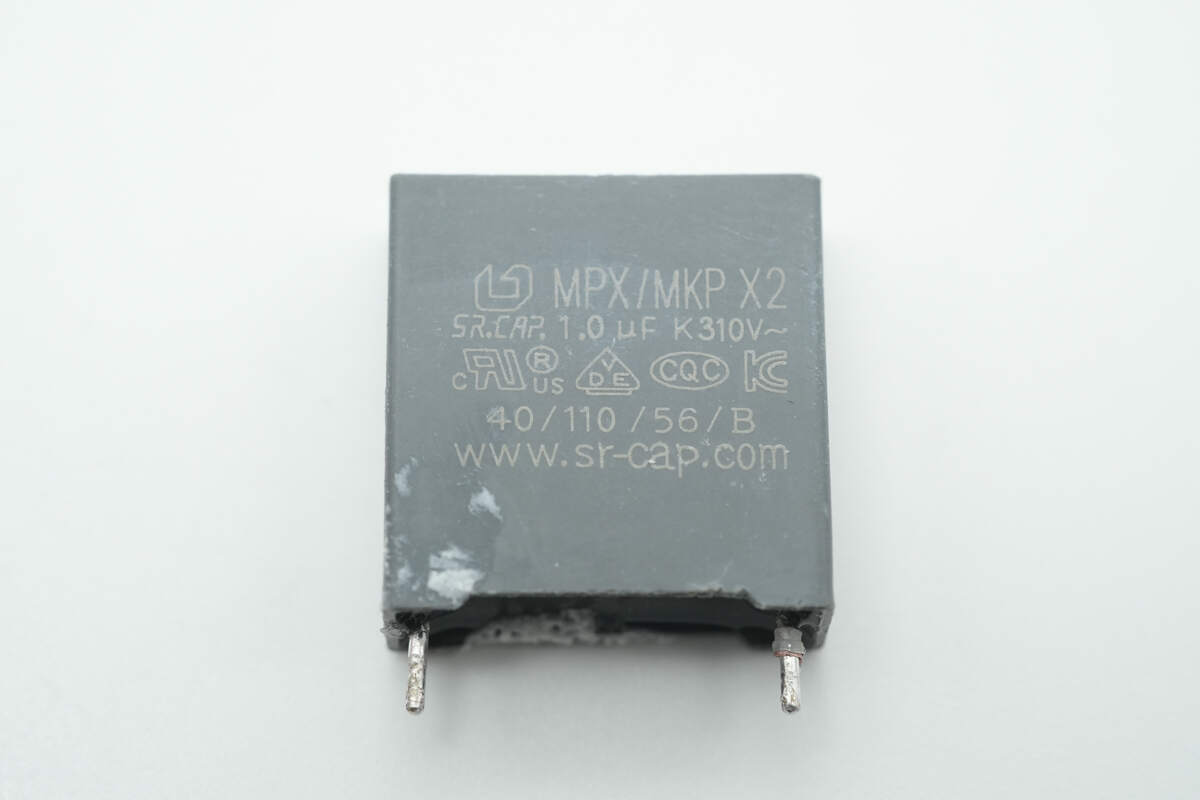
The safety X2 capacitor has a capacitance of 1μF.
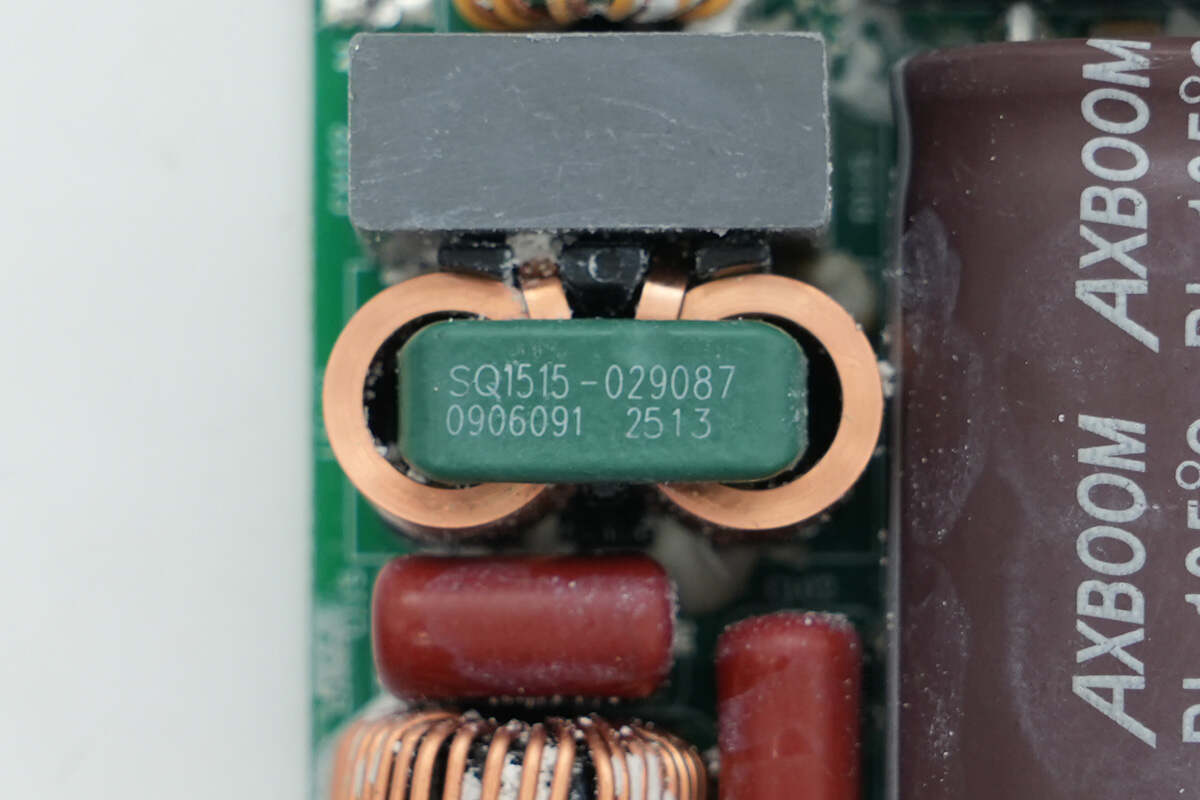
The secondary common mode choke is wound with flat copper strips and uses a green magnetic core.
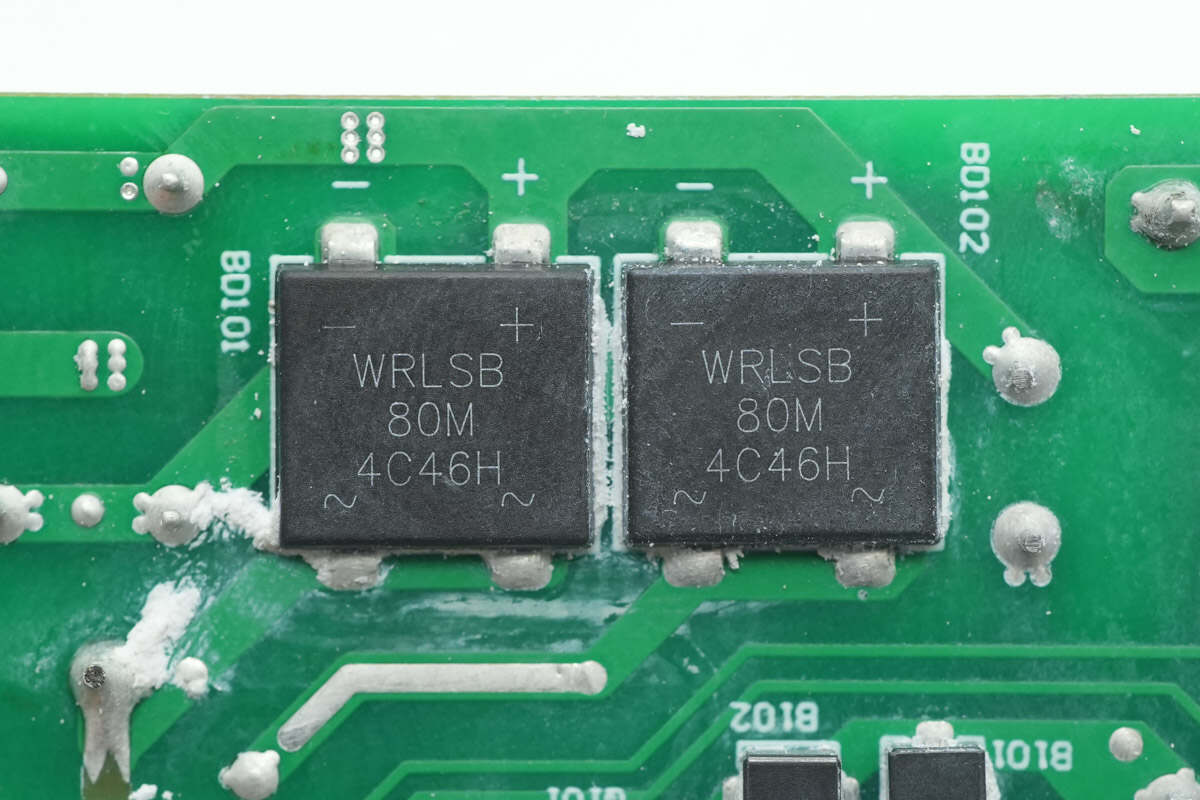
The bridge rectifier is from World Industrial, model WRLSB80M. This soft recovery bridge diode features a gentle recovery curve and smooth turn-off characteristics, which help minimize harmonic oscillations caused by the diode junction capacitance. It uses an LSB package that offers excellent heat dissipation, enhancing reliability for medium to high wattage adapters. A single diode can handle over 60W.
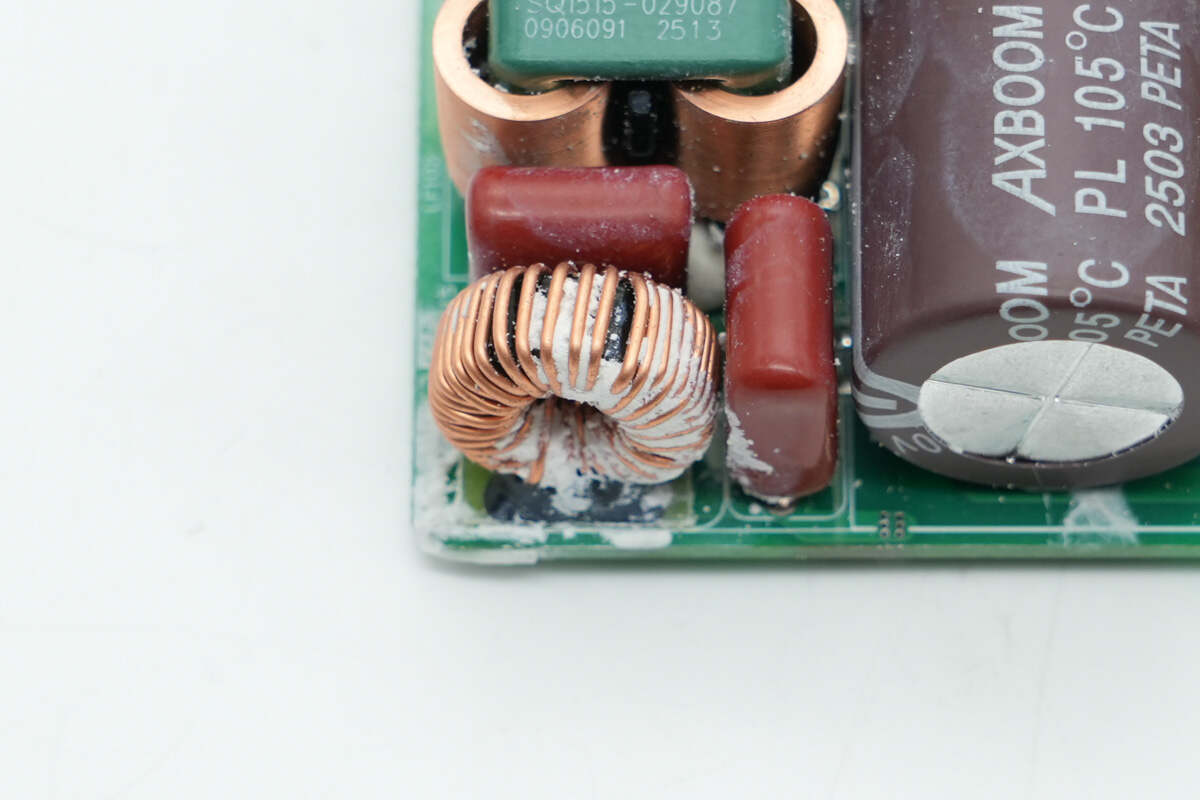
The filter inductor has a bakelite underneath and is reinforced with adhesive glue.
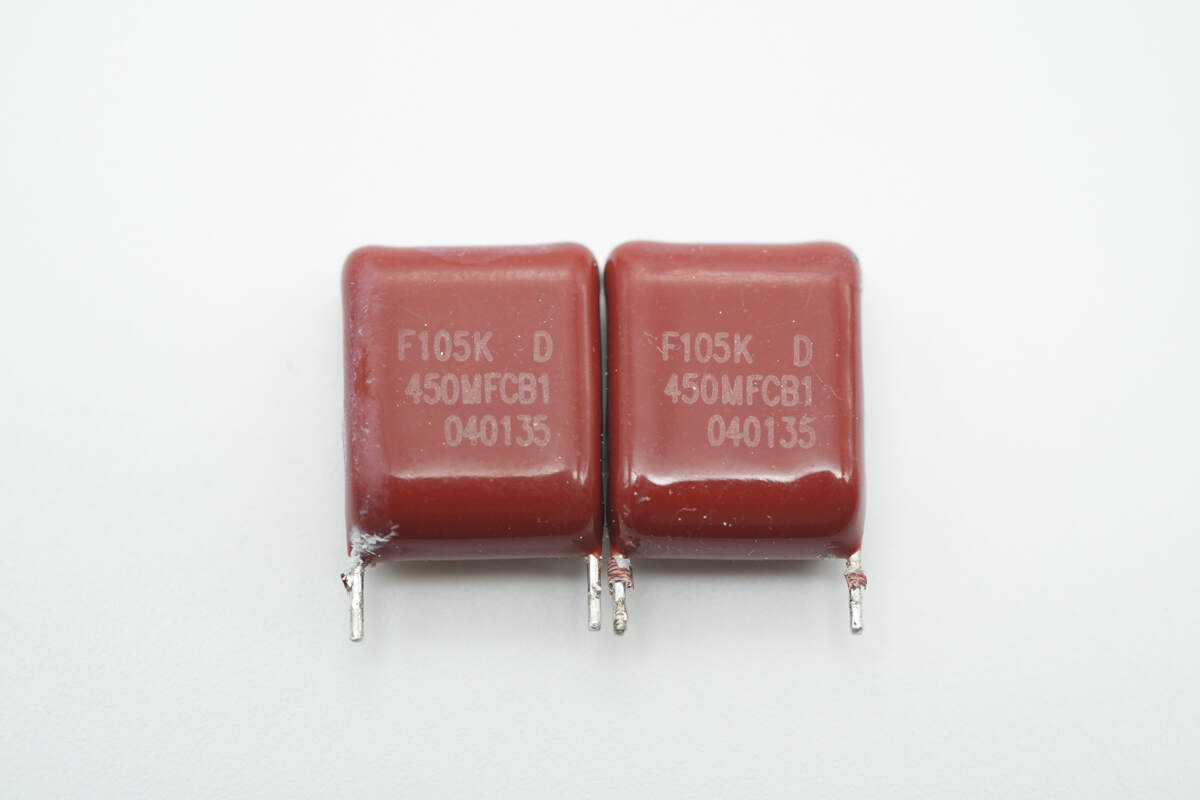
The two film capacitors are rated at 1μF, 450V.
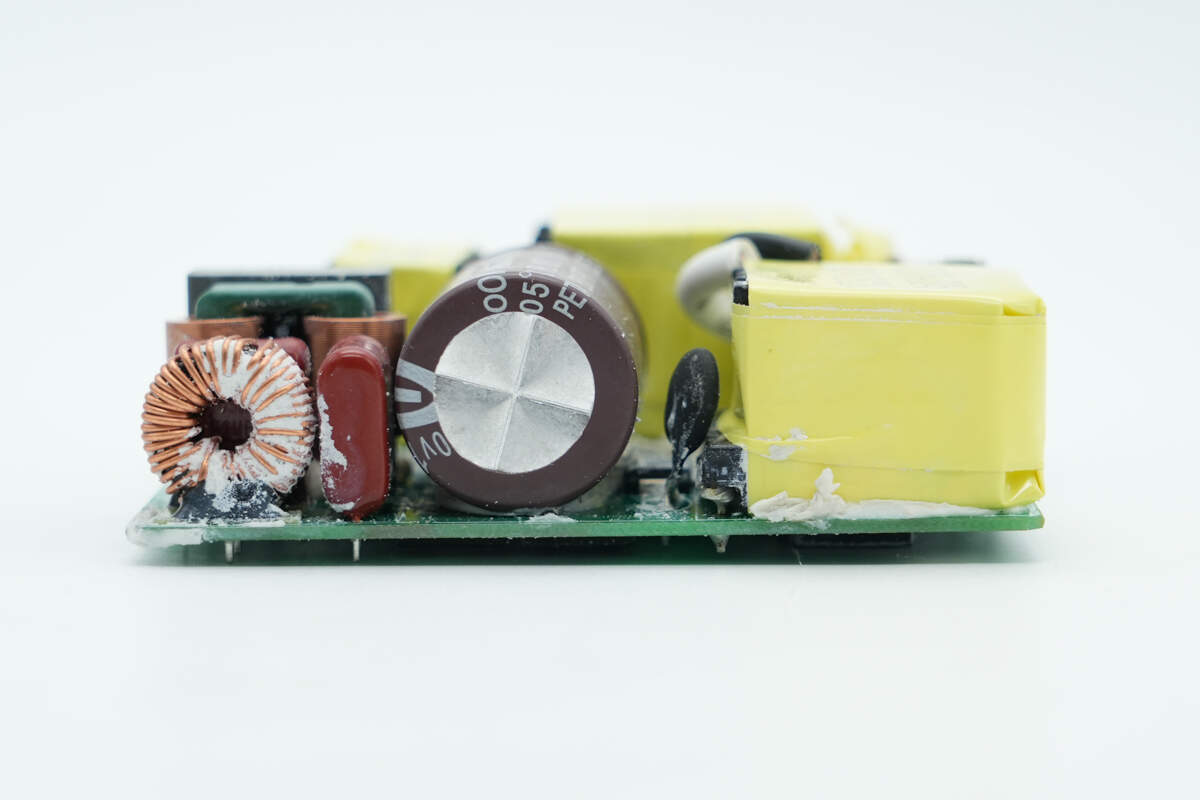
One side of the module includes an electrolytic capacitor, an NTC thermistor, and a PFC boost inductor.
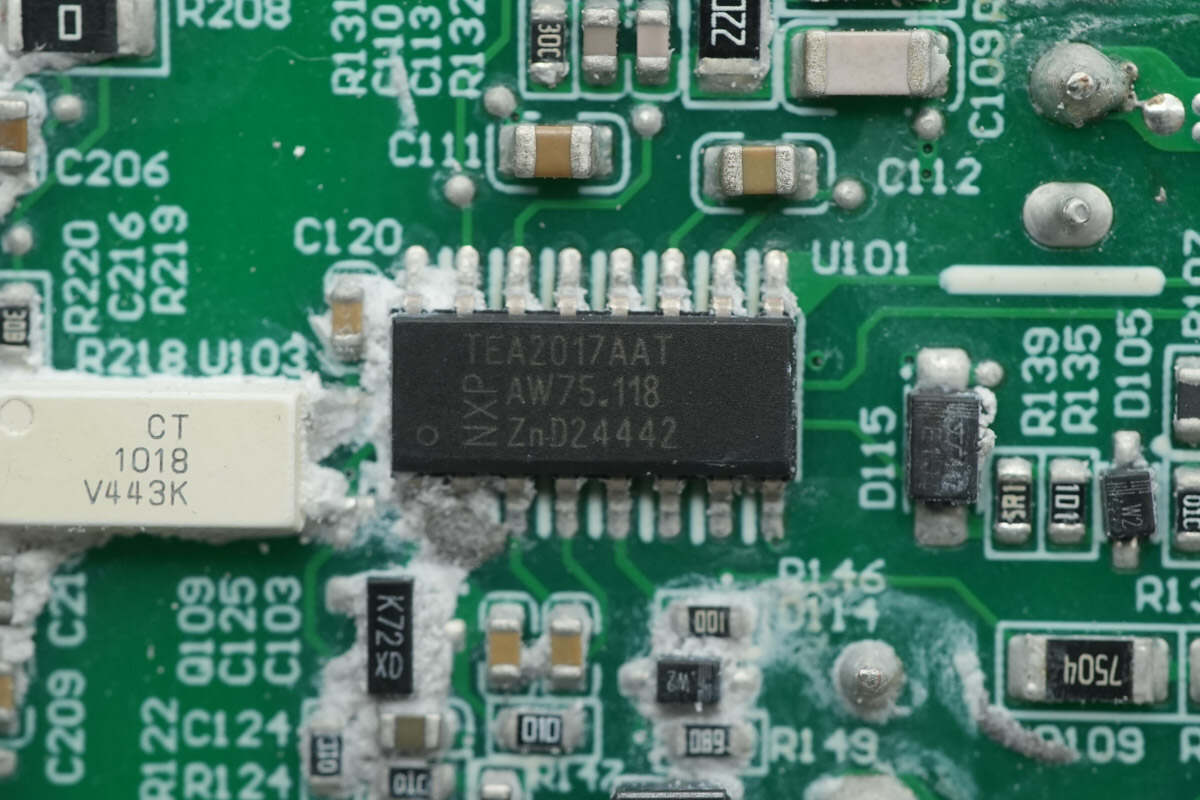
The master control chip is from NXP, model TEA2017AAT. It is a digitally configurable LLC and PFC combo controller designed for high-efficiency resonant power supplies. The chip integrates both LLC and PFC controller functions. The PFC section can be configured to operate in DCM/QR, CCM fixed frequency, or a multimode supporting all operation modes, optimizing PFC efficiency.
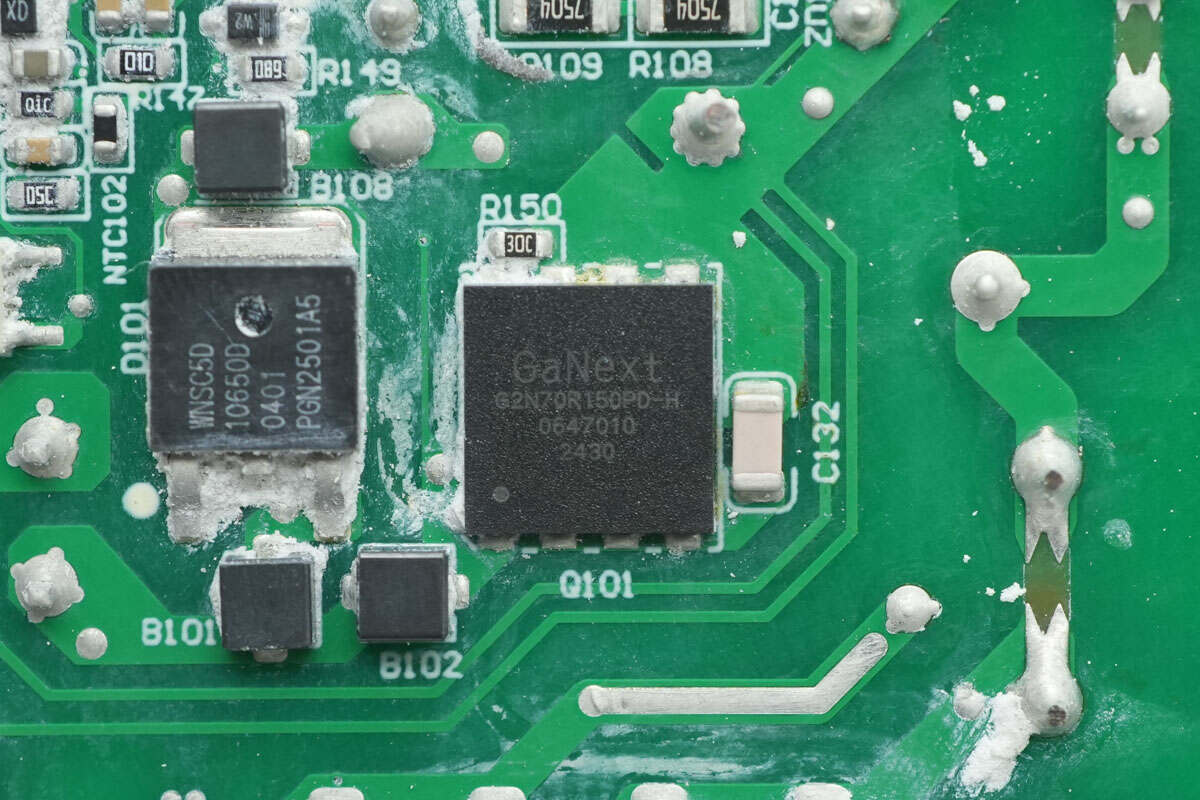
The PFC MOSFET is from GaNext, model G2N70R150PD-H. It is a GaN power device with a voltage rating of 700V and a transient voltage tolerance of 800V. The nominal on-resistance is 150mΩ, and the gate voltage rating supports ±20V, allowing it to be driven by traditional silicon MOSFET drivers. Compared to enhancement-mode GaN devices, this greatly simplifies the gate driver circuit design. It uses an HDFN 8×8-8L package.
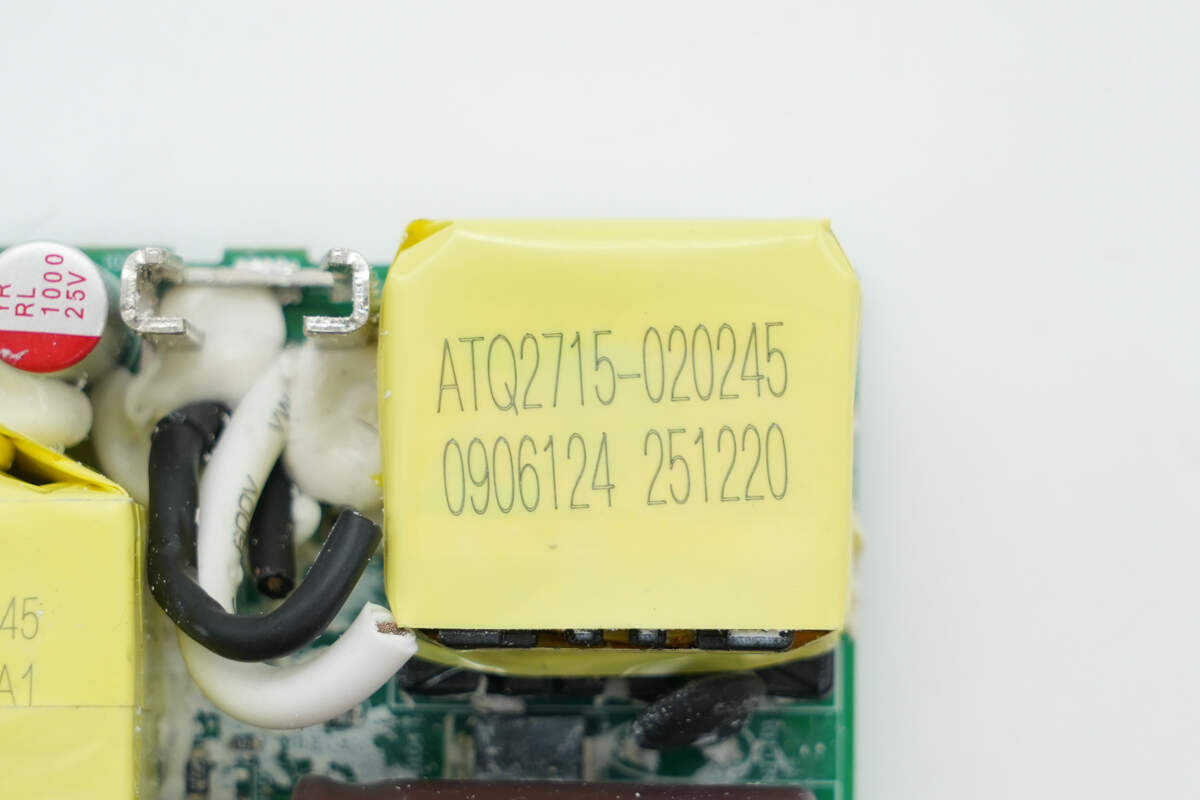
The PFC boost inductor uses an ATQ2715 magnetic core.
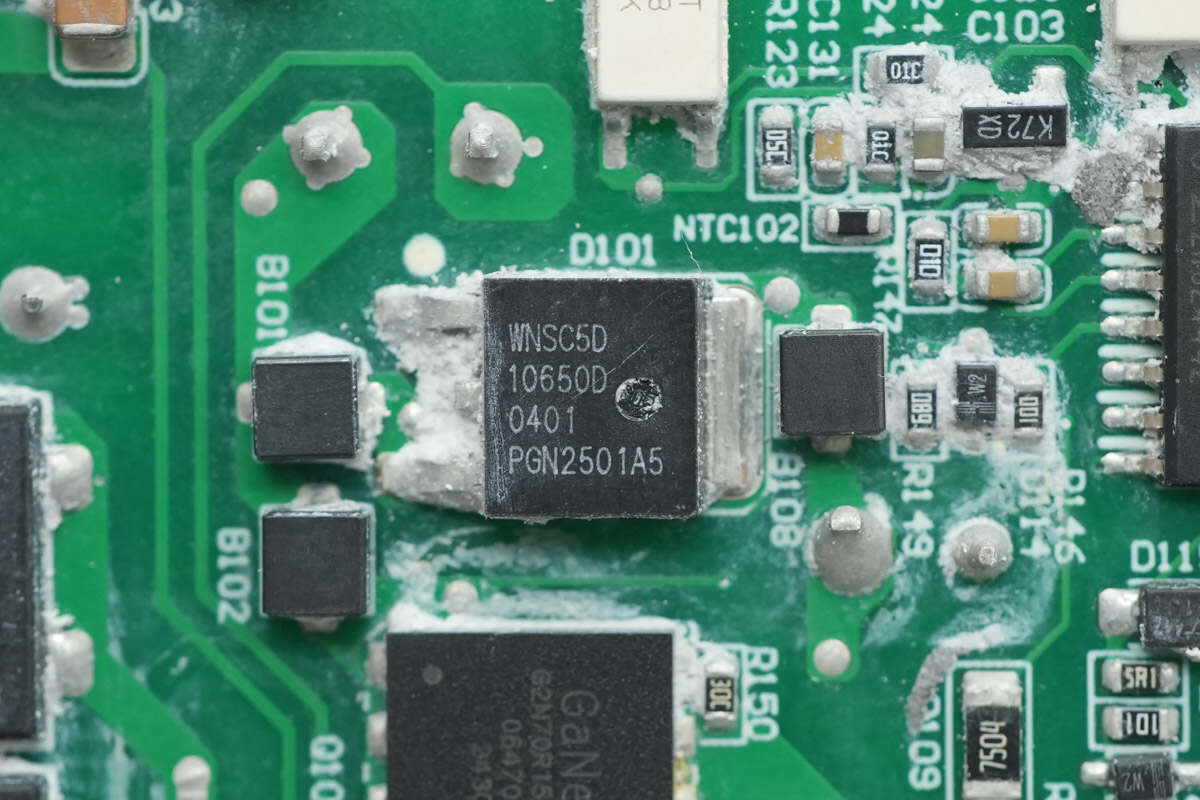
The PFC rectifier is from WeEn, model WNSC5D10650D. It is a 650V-rated SiC diode, comes in a TO252 package.
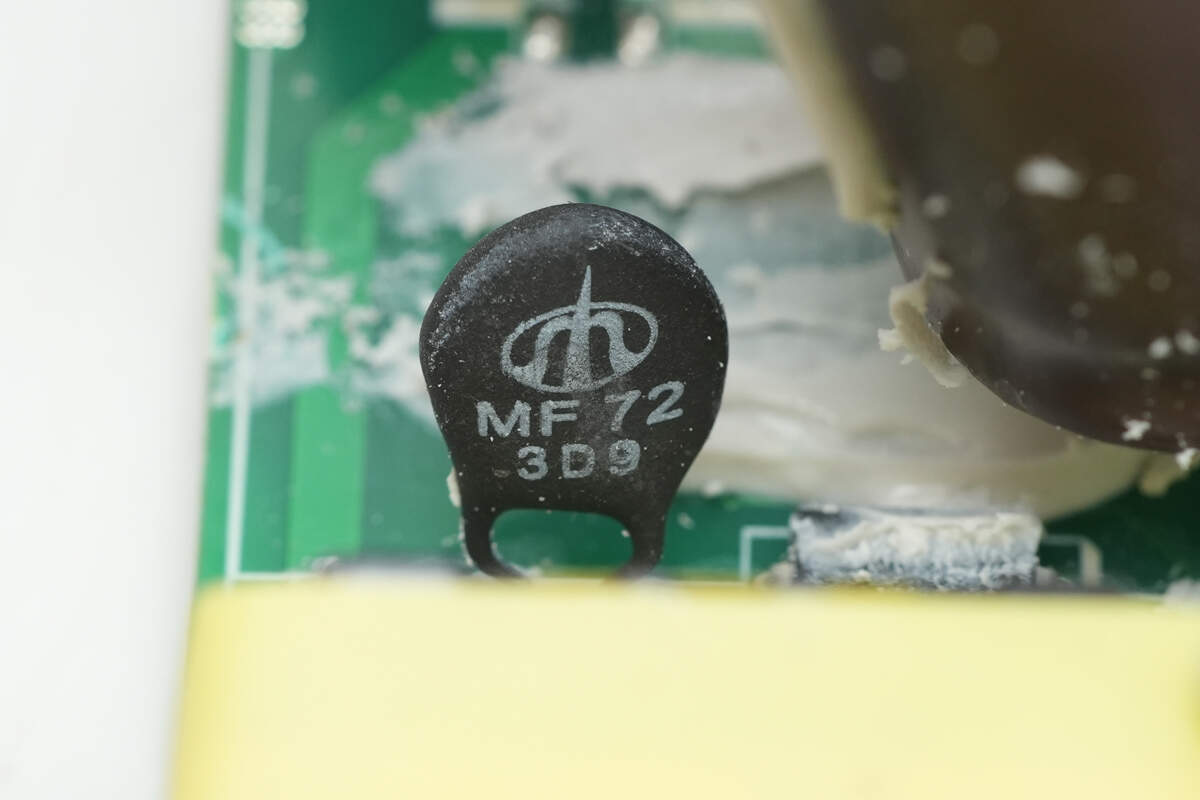
The NTC thermistor is from Shiheng, part of the MF72 series. It is used to suppress surge currents during capacitor charging.
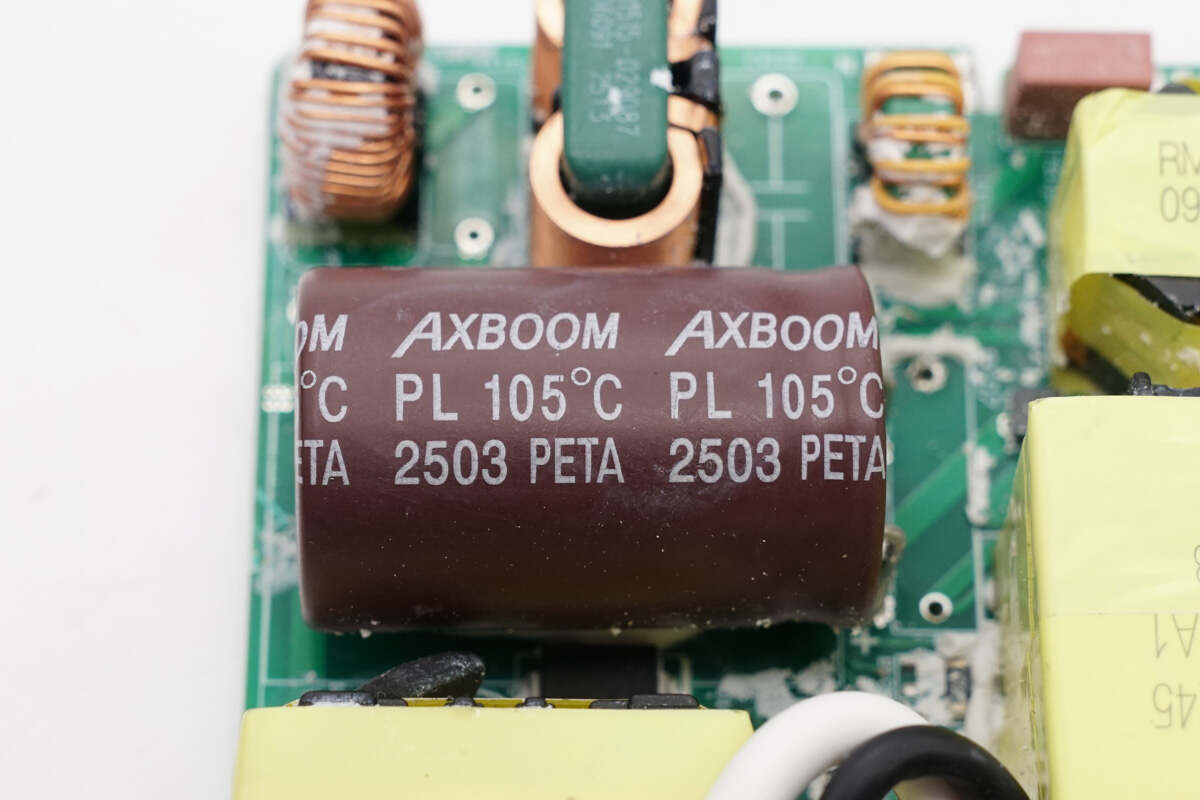
The electrolytic capacitor is from AXBOOM.
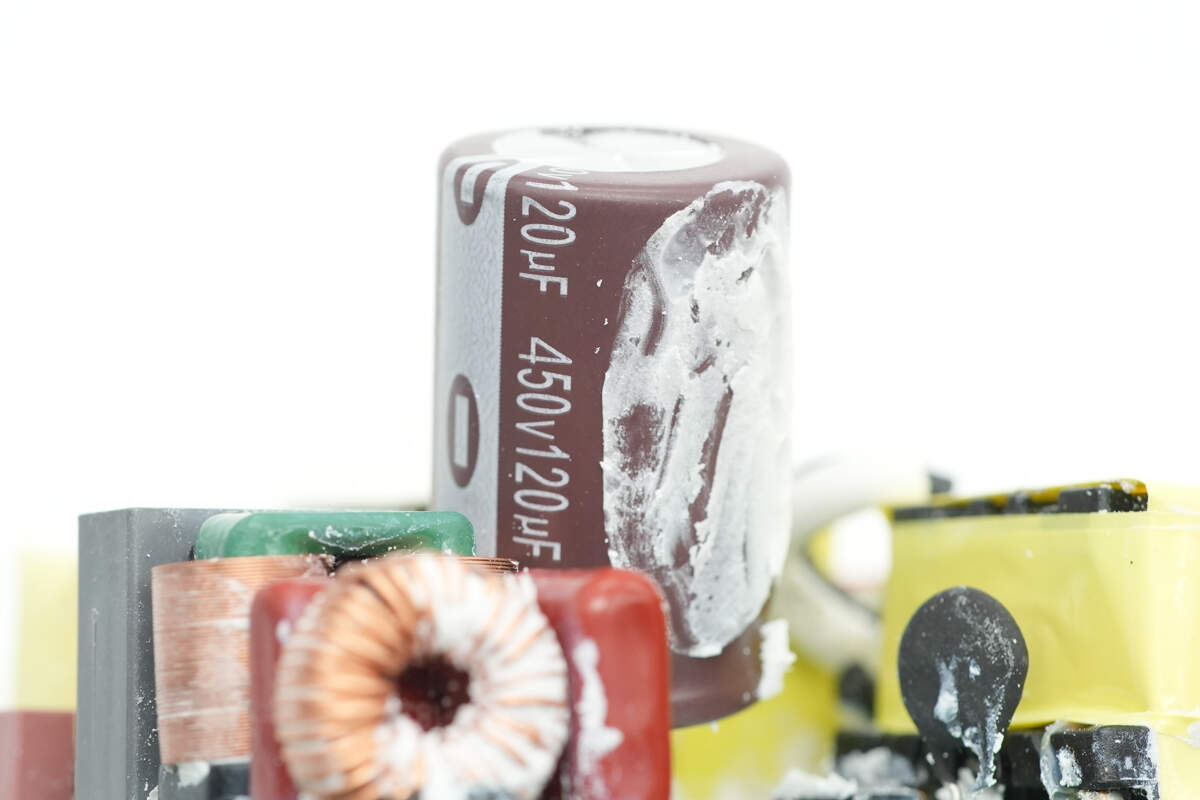
The electrolytic capacitor has a specification of 450V, 120μF.
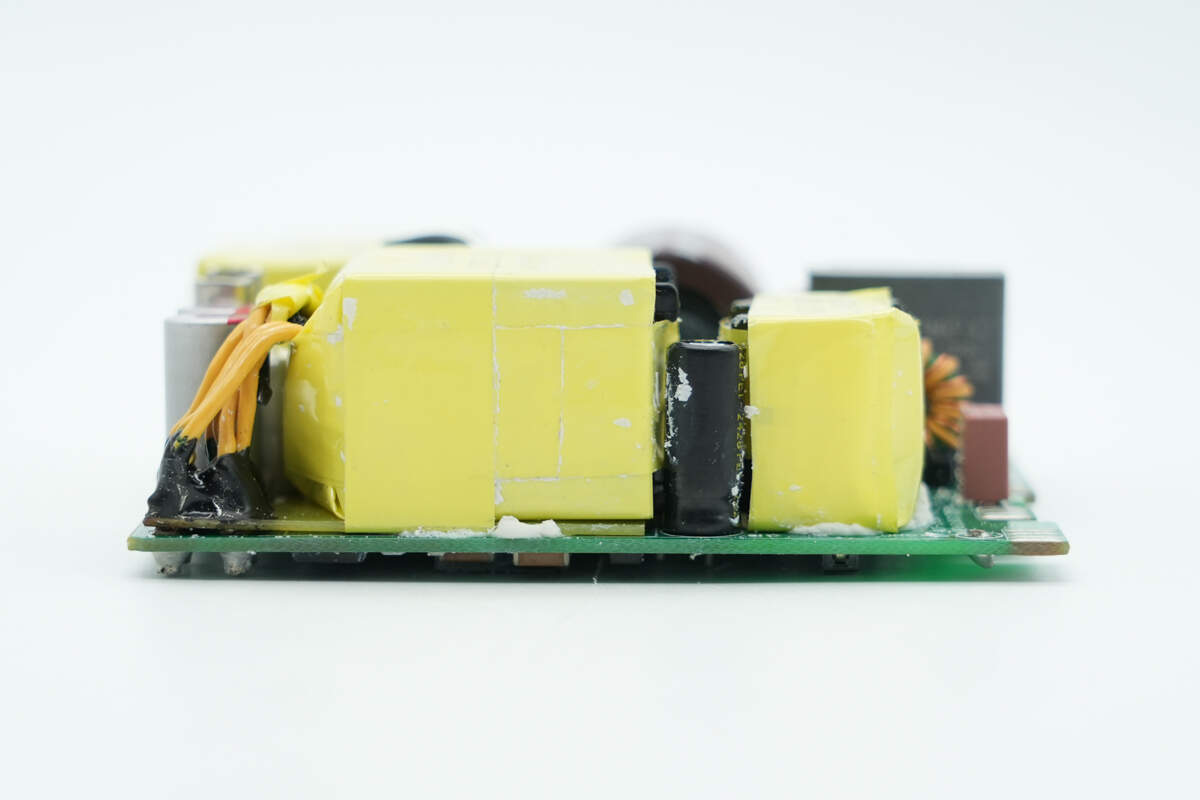
On the other side, there is a resonant inductor, a capacitor that powers the master control chip, a transformer, and a solid capacitor for output filtering.
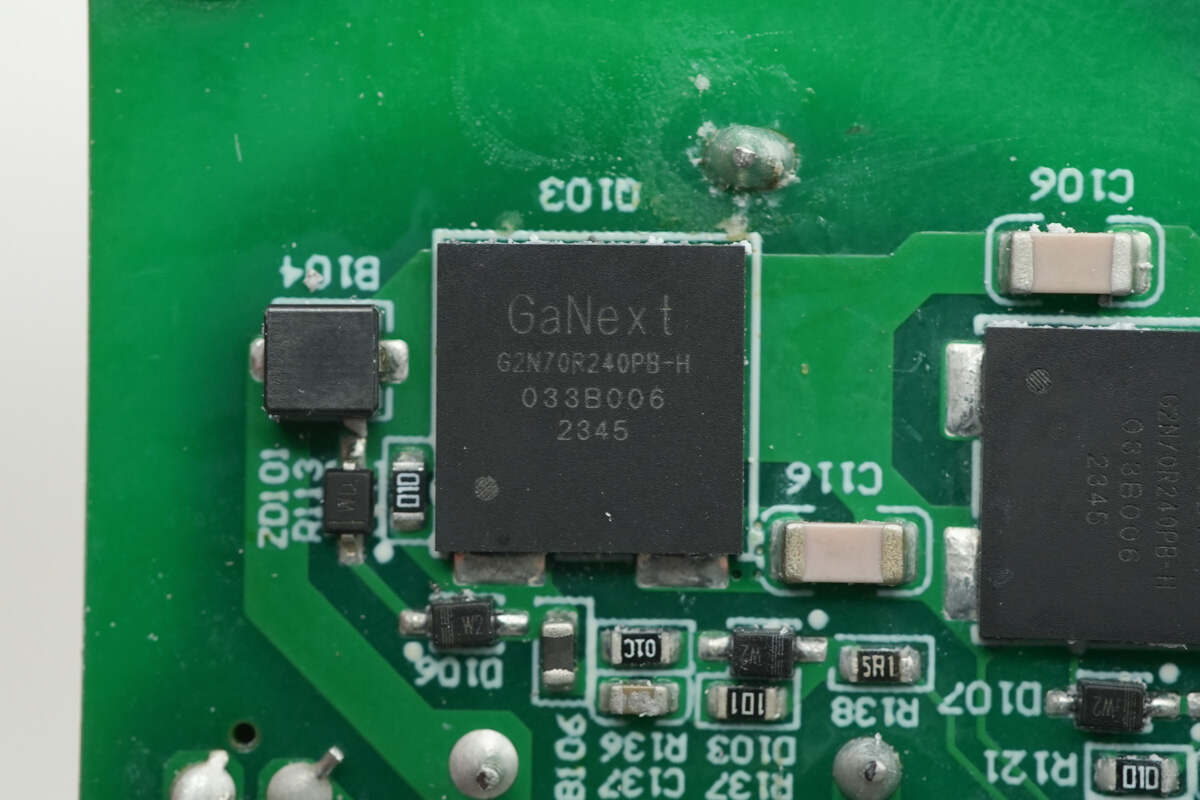
The LLC MOSFET is also from GaNext, model G2N70R240PB-H. It has a voltage rating of 700V, with an on-resistance of 240mΩ. The gate supports a 20V driving voltage, making it suitable for QR or ACF flyback topologies, totem-pole PFC, inverters, LLC, and other soft-switching applications. It comes in a PQFN 8×8 package.
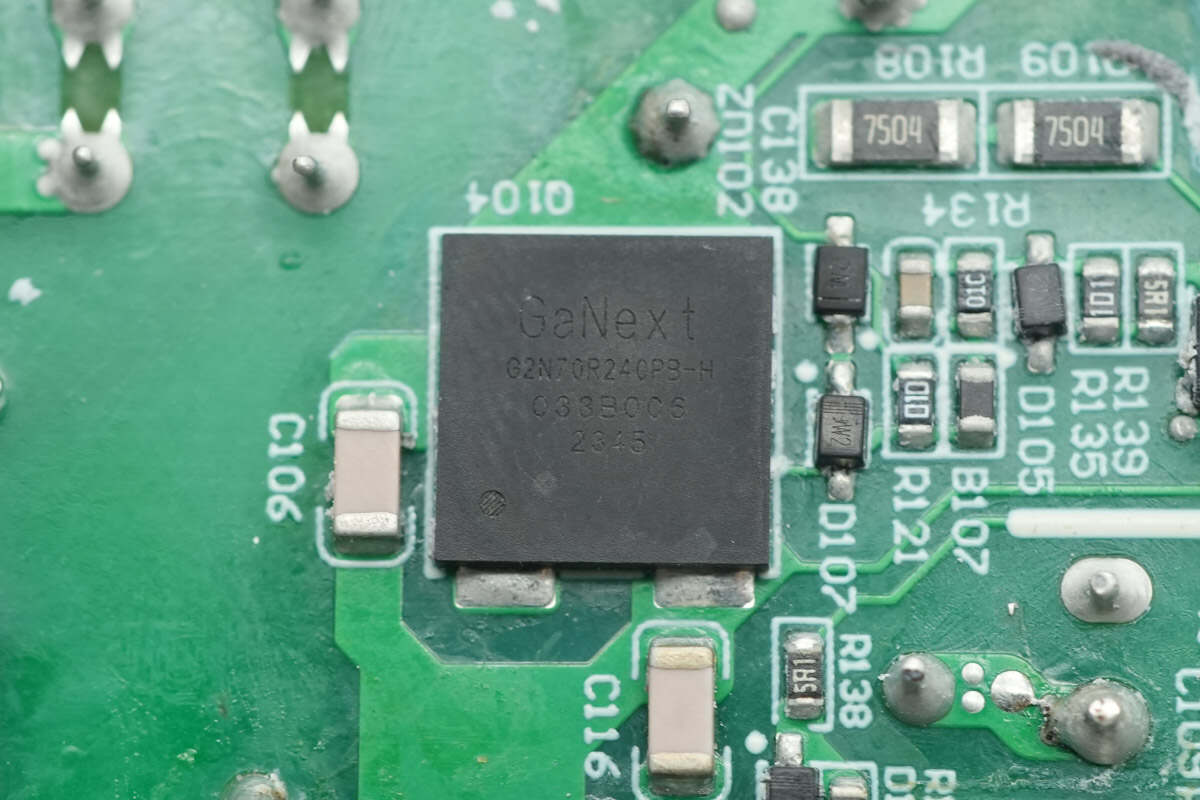
Close-up of the other LLC MOSFET.
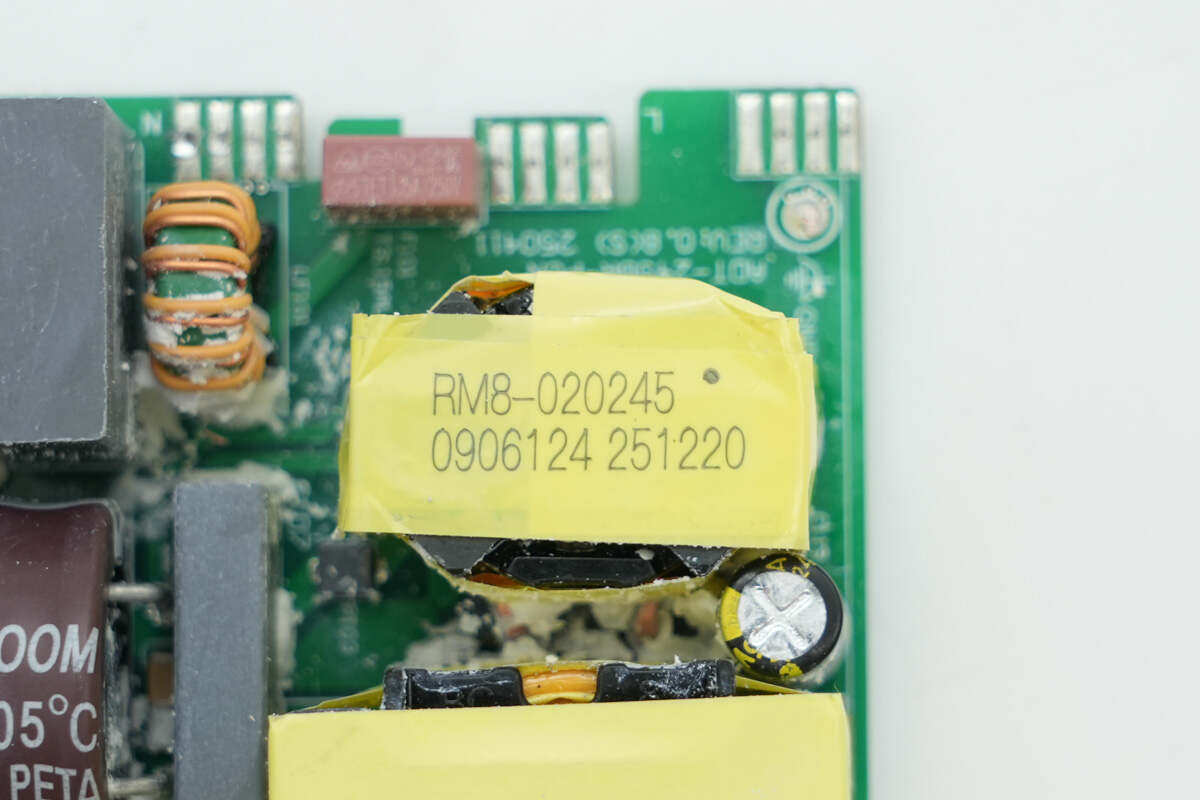
Close-up of the resonant inductor.
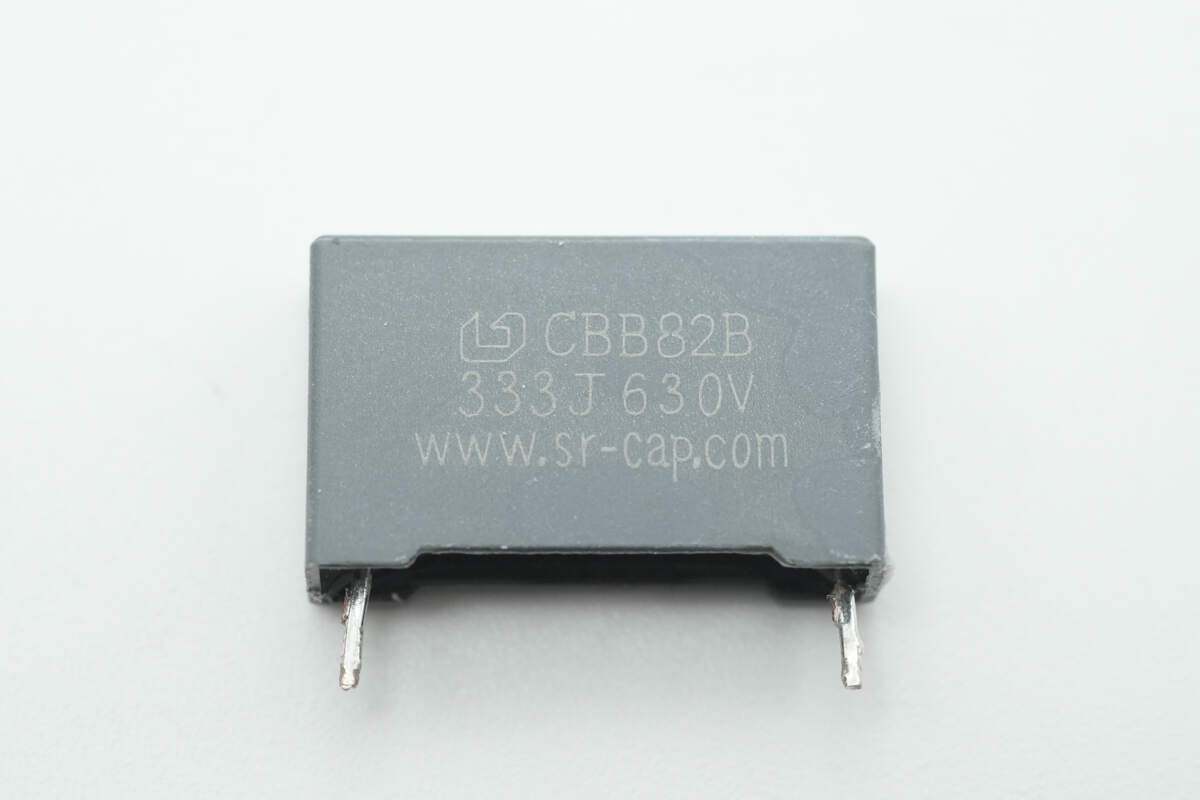
The resonant capacitor has a specification of 0.033μF, 630V.
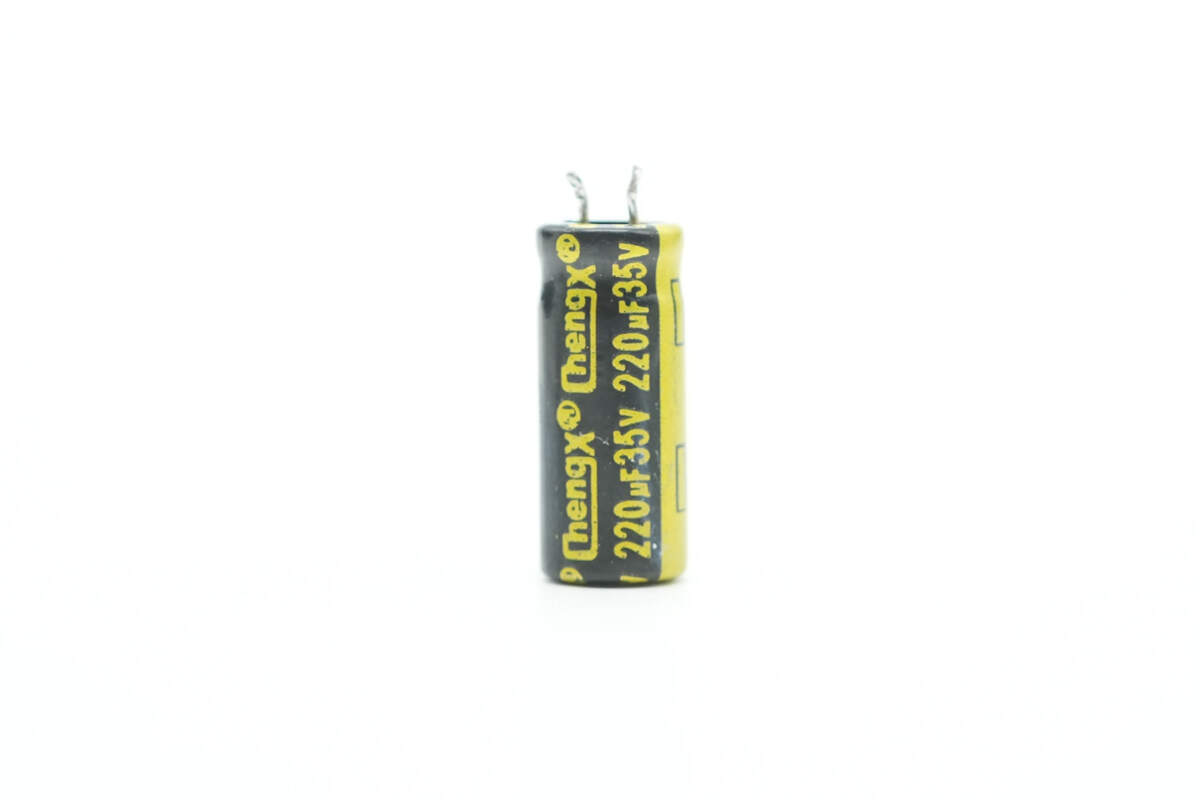
The capacitor that powers the master control chip is from Chengx. 35V 220μF.
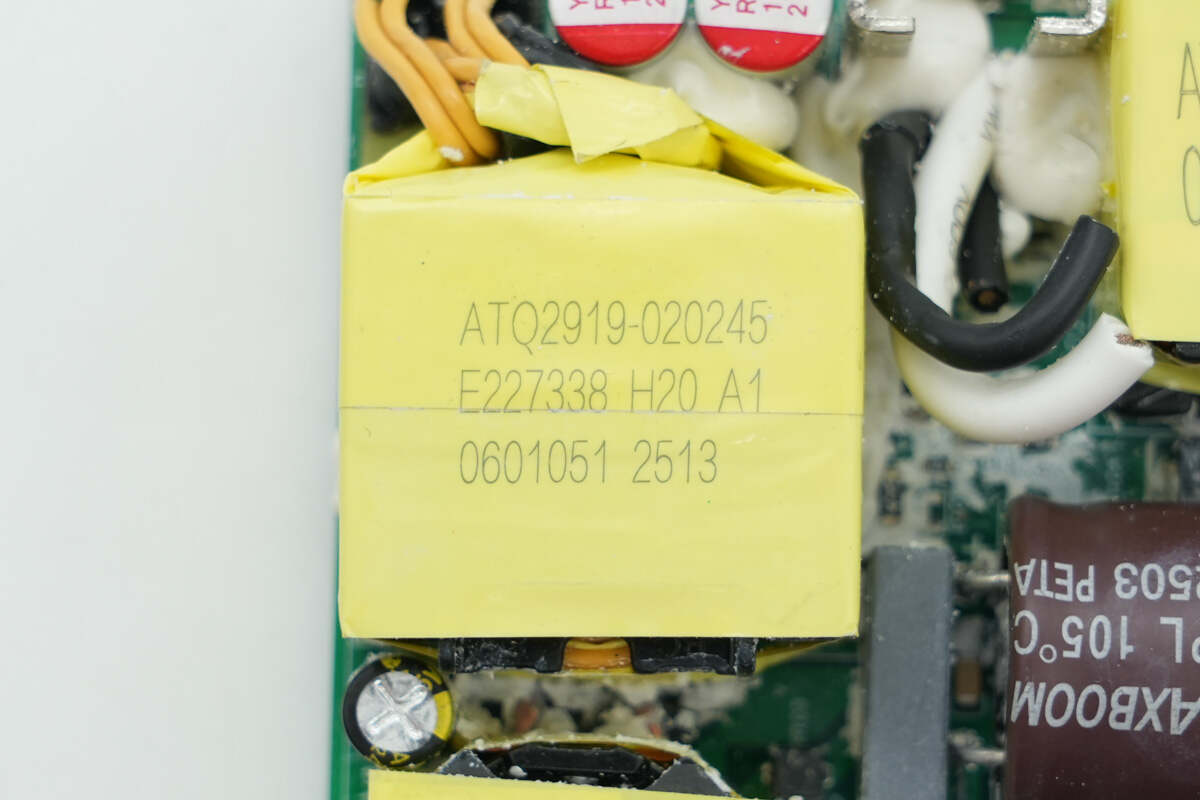
The transformer uses an ATQ2919 magnetic core.
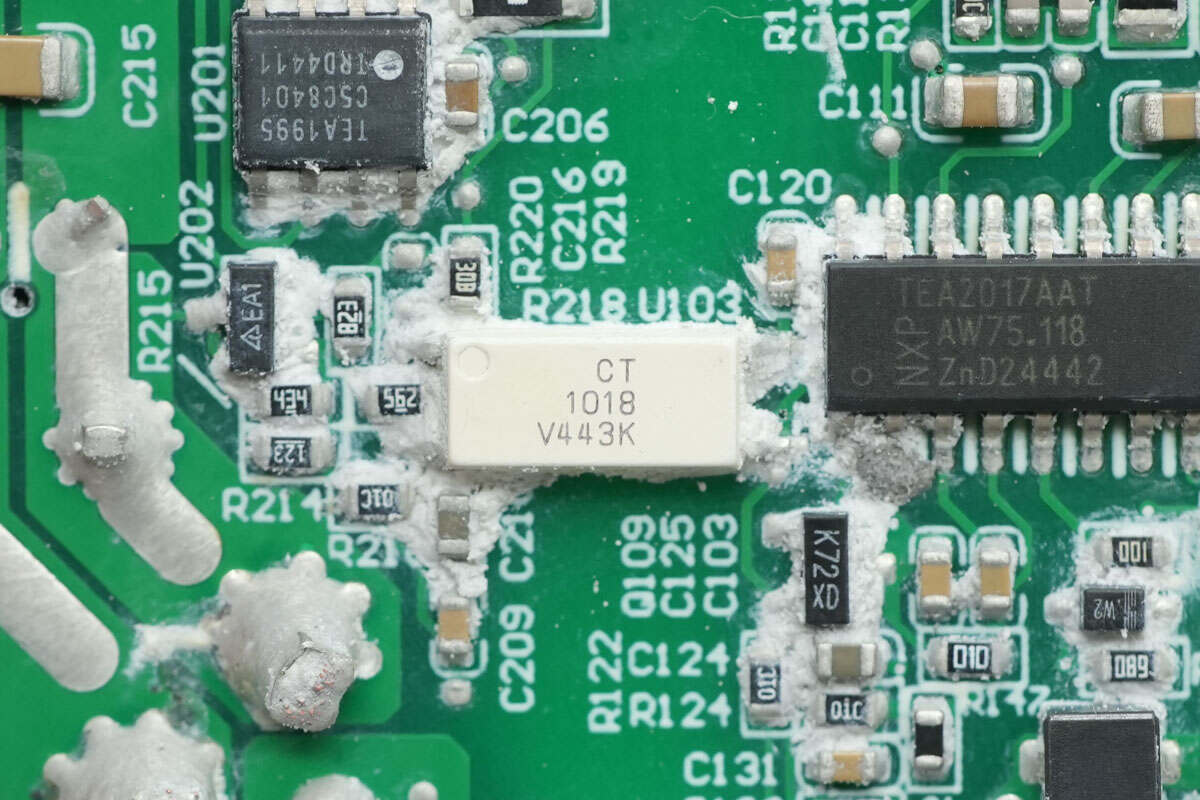
The CT1018 optocoupler is used for output voltage feedback.
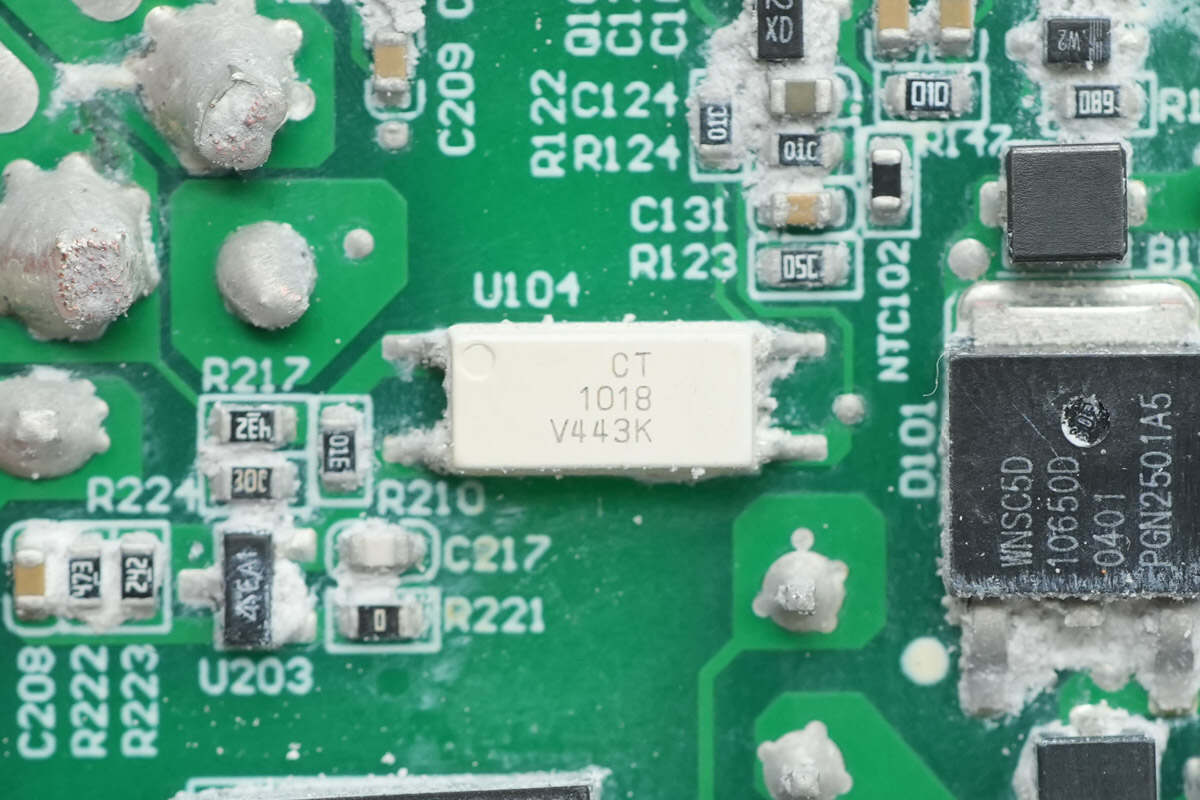
Close-up of the other CT1018 optocoupler.
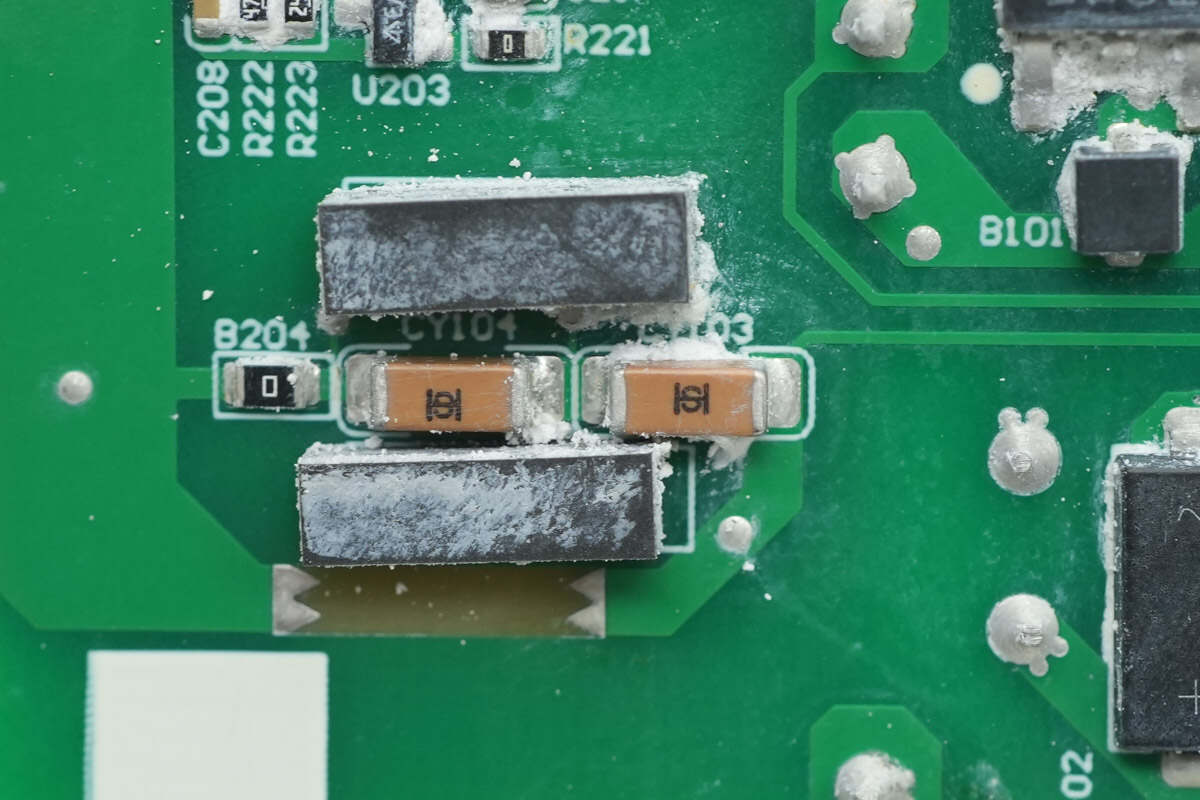
The SMD Y capacitors are from Holy Stone. Two capacitors are connected in series to increase the voltage rating and enhance safety.
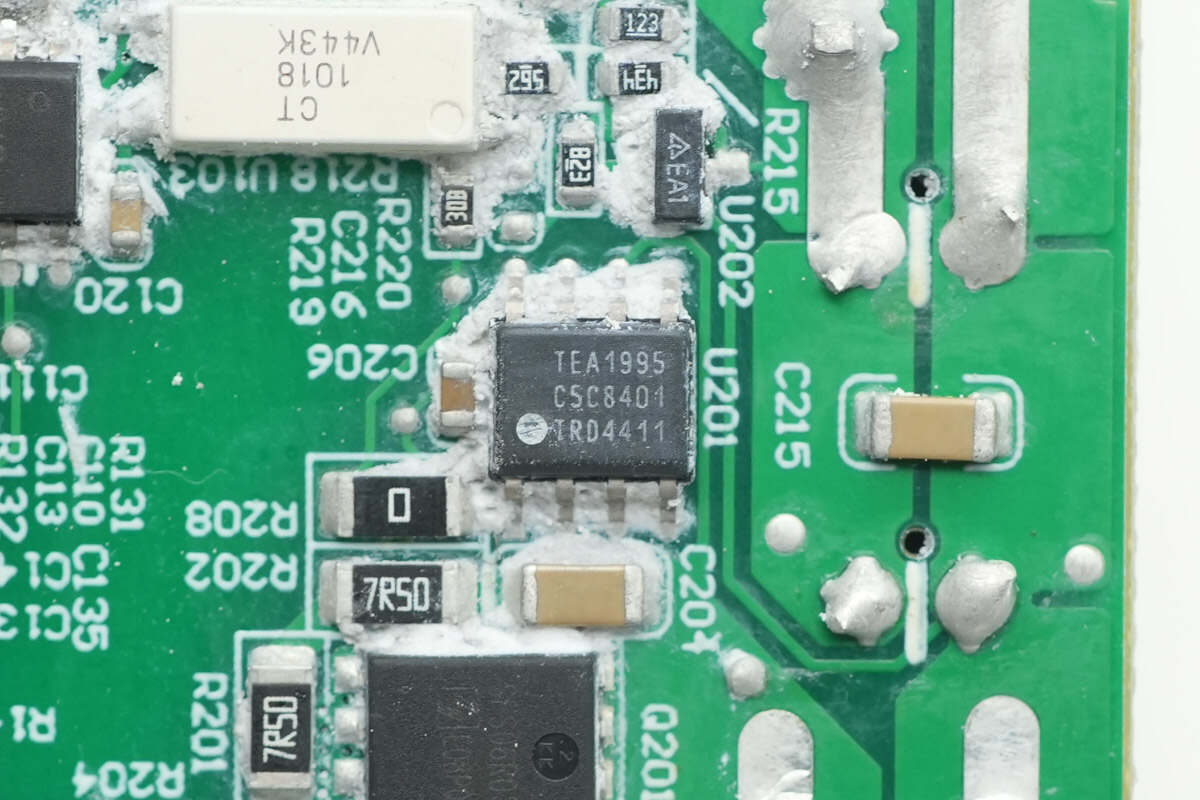
The synchronous rectifier controller is from NXP, model TEA1995. It has two independent synchronous rectifier drivers built in for LLC architecture switch-mode power supplies. The controller simplifies external components, supports a 38V operating voltage, and comes in an SO8 package.
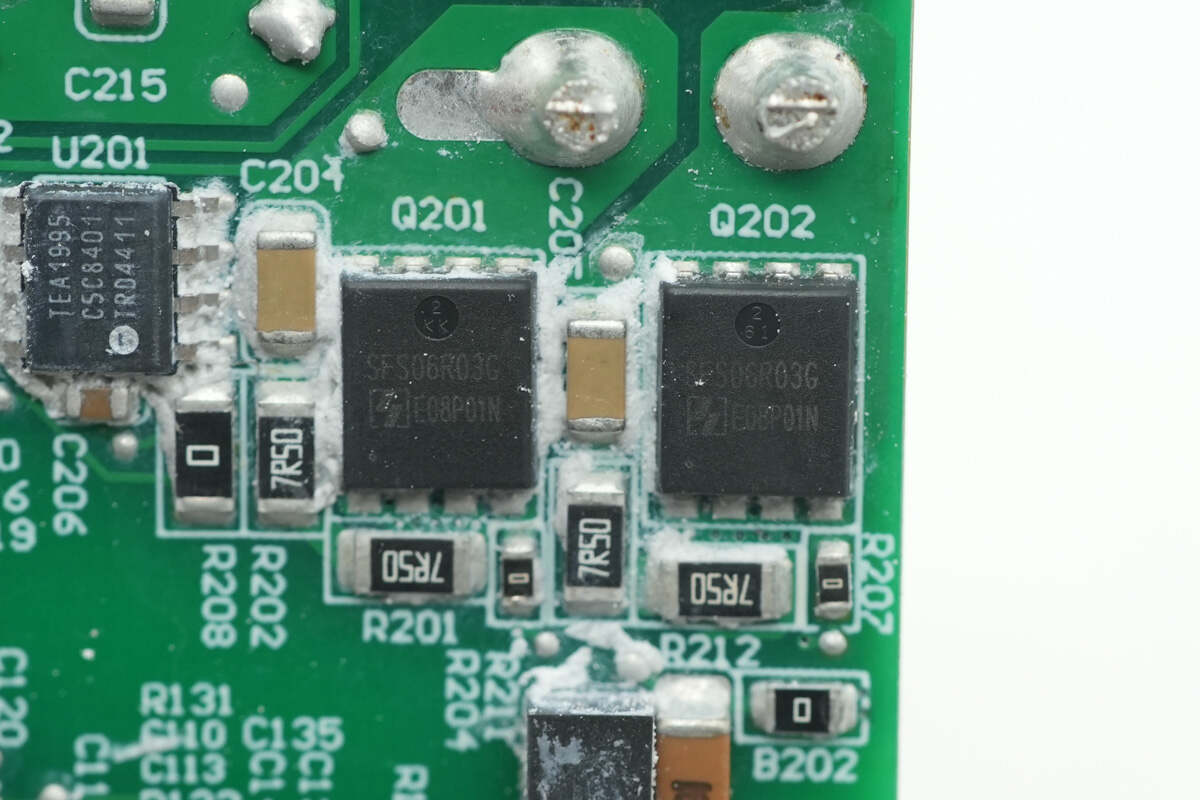
The synchronous rectifier is from Oriental, model SFS06R03GF. It is an NMOS transistor with a voltage rating of 60V and an on-resistance of 3mΩ. It comes in a PDFN 5×6 package.
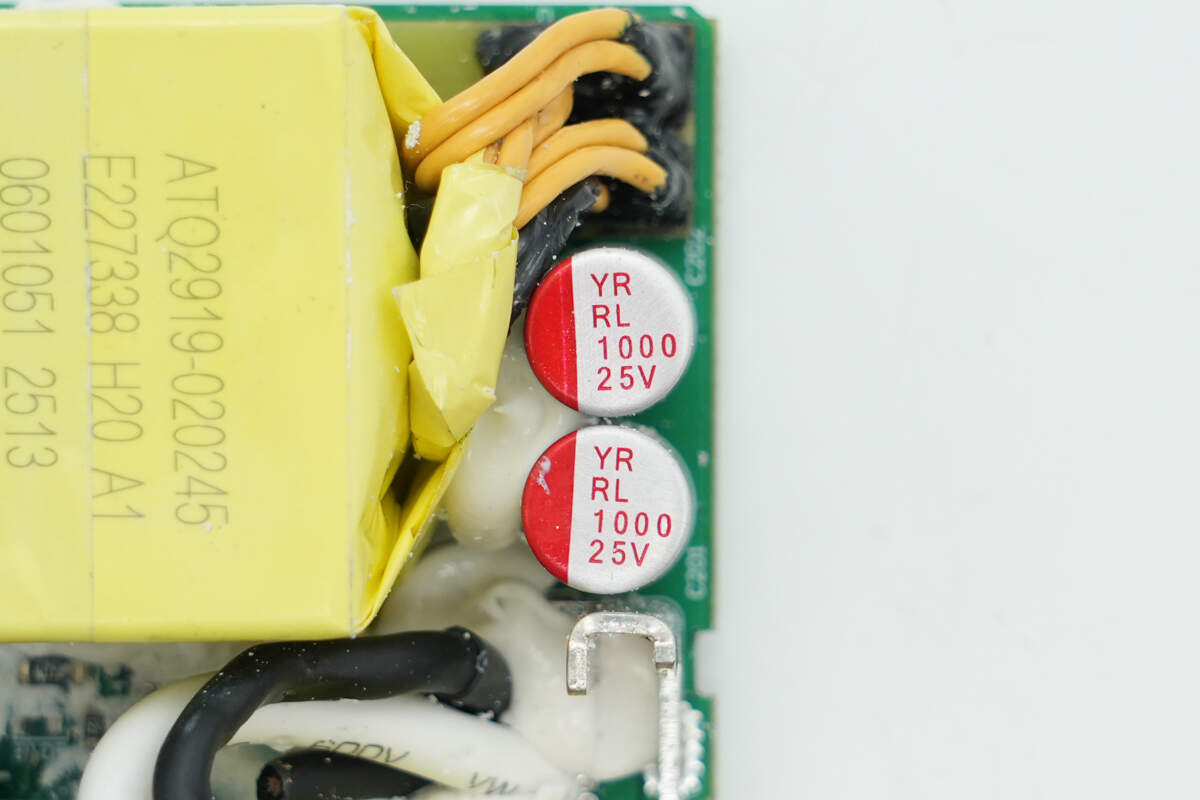
The two solid capacitors for output filtering have a specification of 25V, 1000μF.
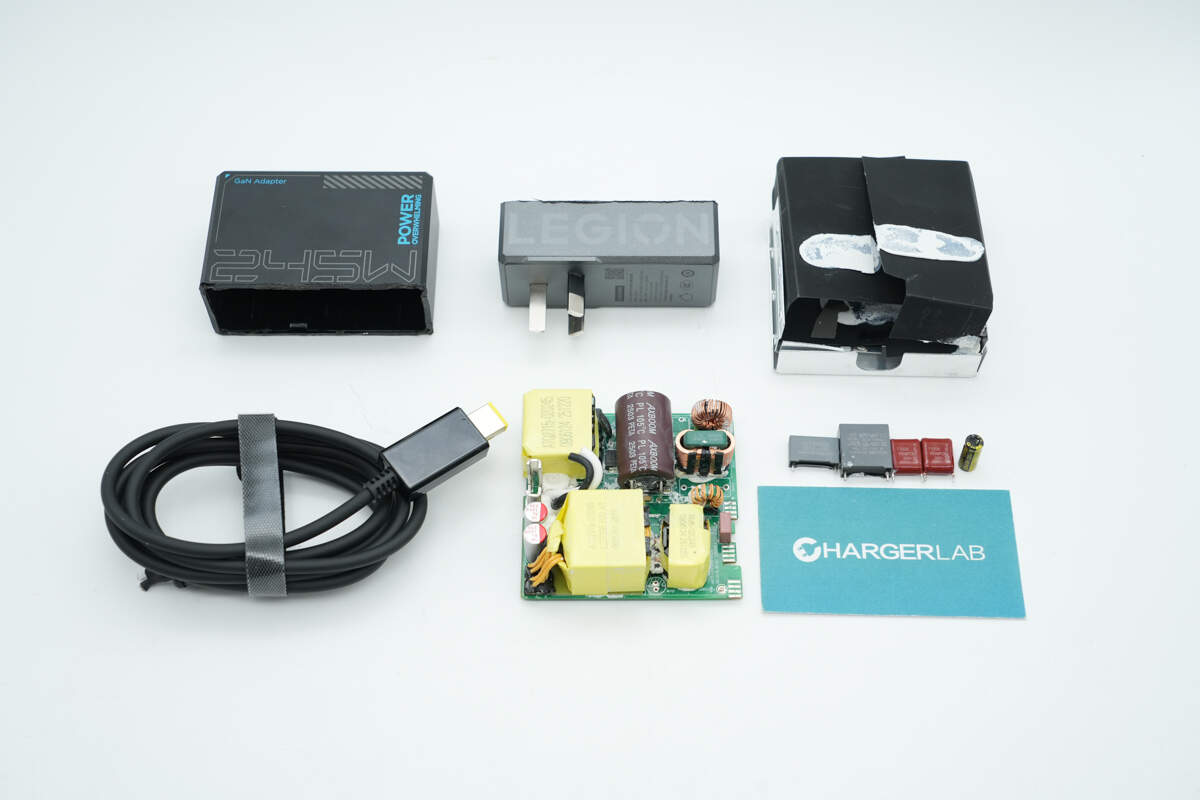
Well, those are all components of the Lenovo Legion 245W GaN Adapter.
Summary of ChargerLAB
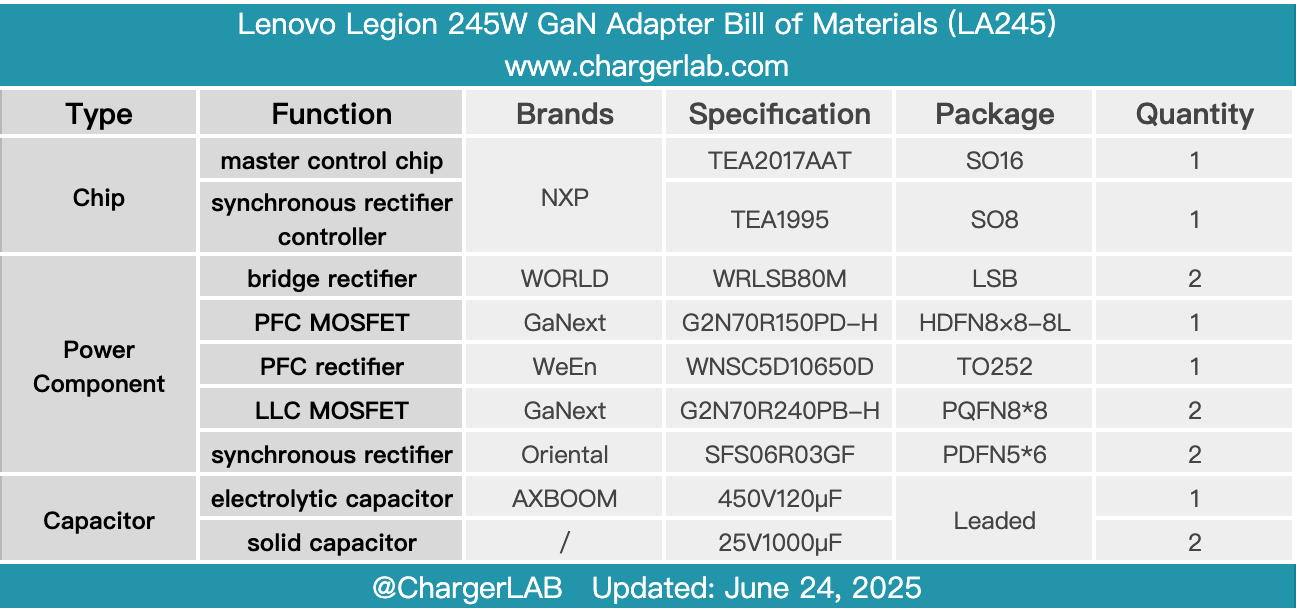
Here is the component list of the Lenovo Legion 245W GaN Adapter for your convenience.
It features a stylish design and comes with a built-in digital display on the Slim Tip square connector cable. Supporting up to 245W output, it can power the Legion 7000/7000P series, 9000P/9000X series, and GeekPro gaming laptops, enabling Beast Mode and Super Performance Mode.
After taking it apart, we found that it is designed based on a high-integration, high-efficiency power topology using NXP's TEA2017AAT and TEA1995 controllers. In the PFC boost circuit and the primary-side MOSFET stage, it employs two GaN devices from GaNext—models G2N70R150PD-H and G2N70R240PB-H, respectively, which further enhance power efficiency and power density.
To handle sustained high-power output, the module uses a generous amount of potting compound on both the front and back to aid heat dissipation. It is also covered with heatsinks. The output cable is secured and protected with a metal plate, reflecting attention to detail in the design.
Related Articles:
1. Teardown of DJI Original 240W Power Adapter for Mavic 4 Pro (CDX341-240)
2. Teardown of CUKTECH 30 Charging Station Ultra (TA3005U)
3. Teardown of Huawei 100W SuperCharge GaN Charger (HW-200500C03)

